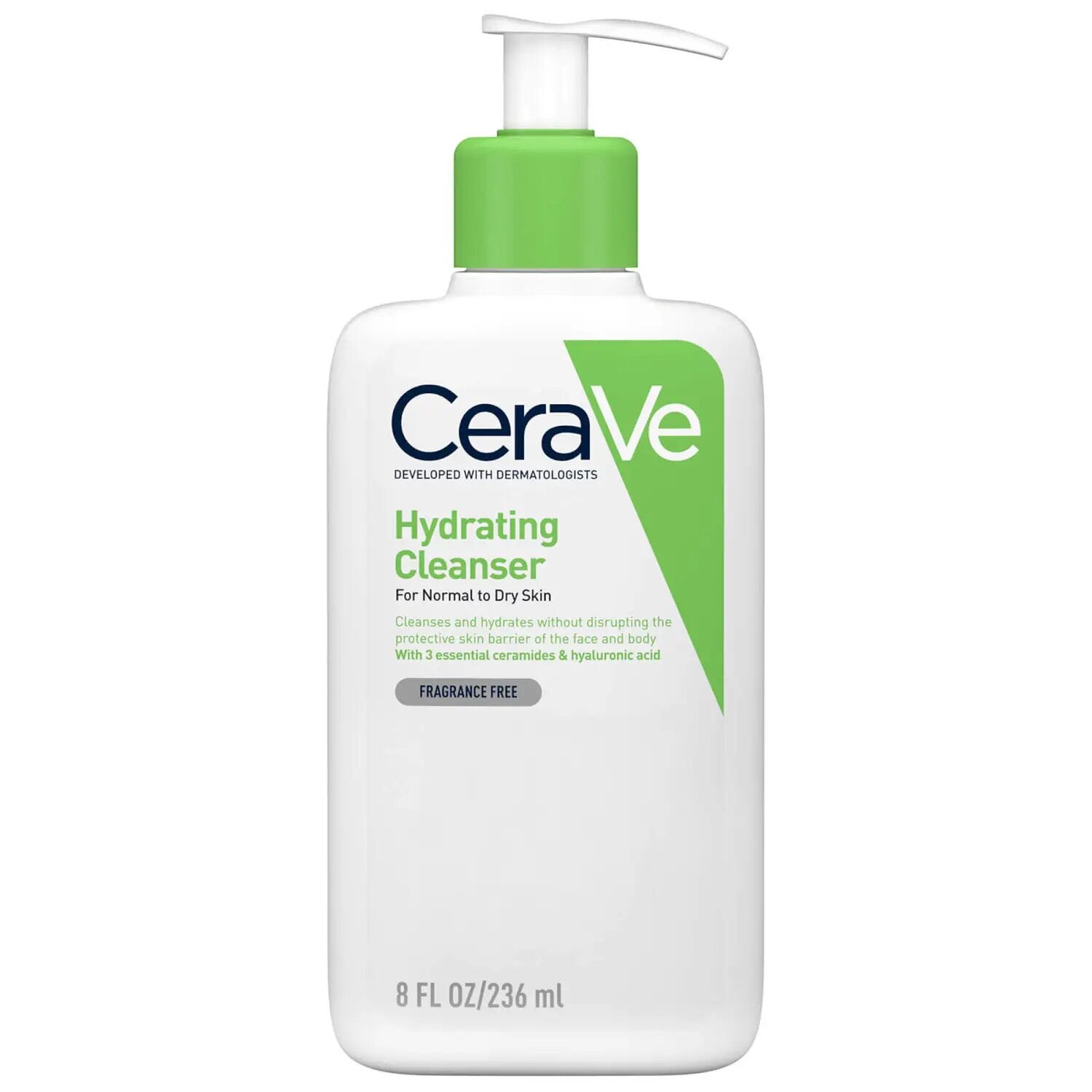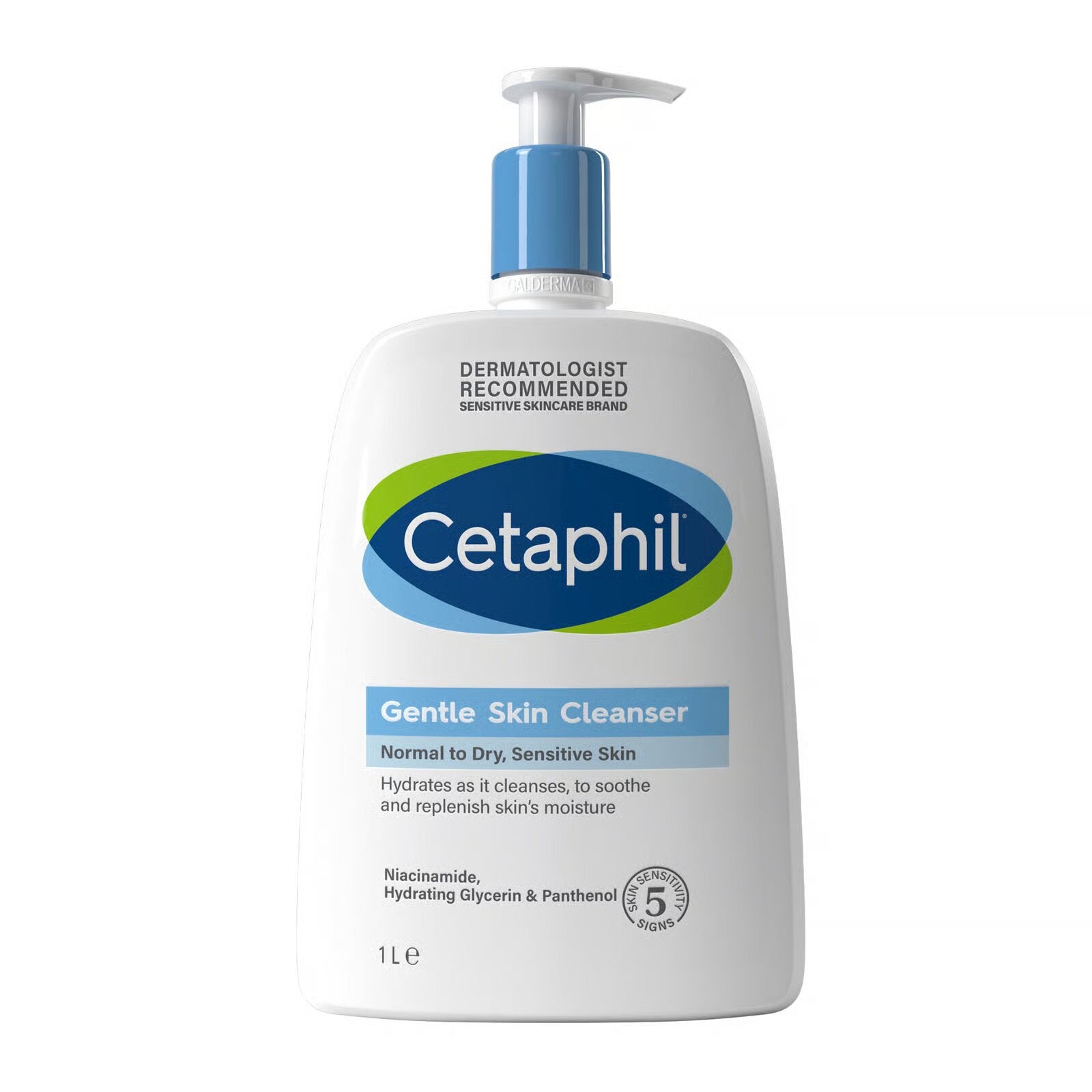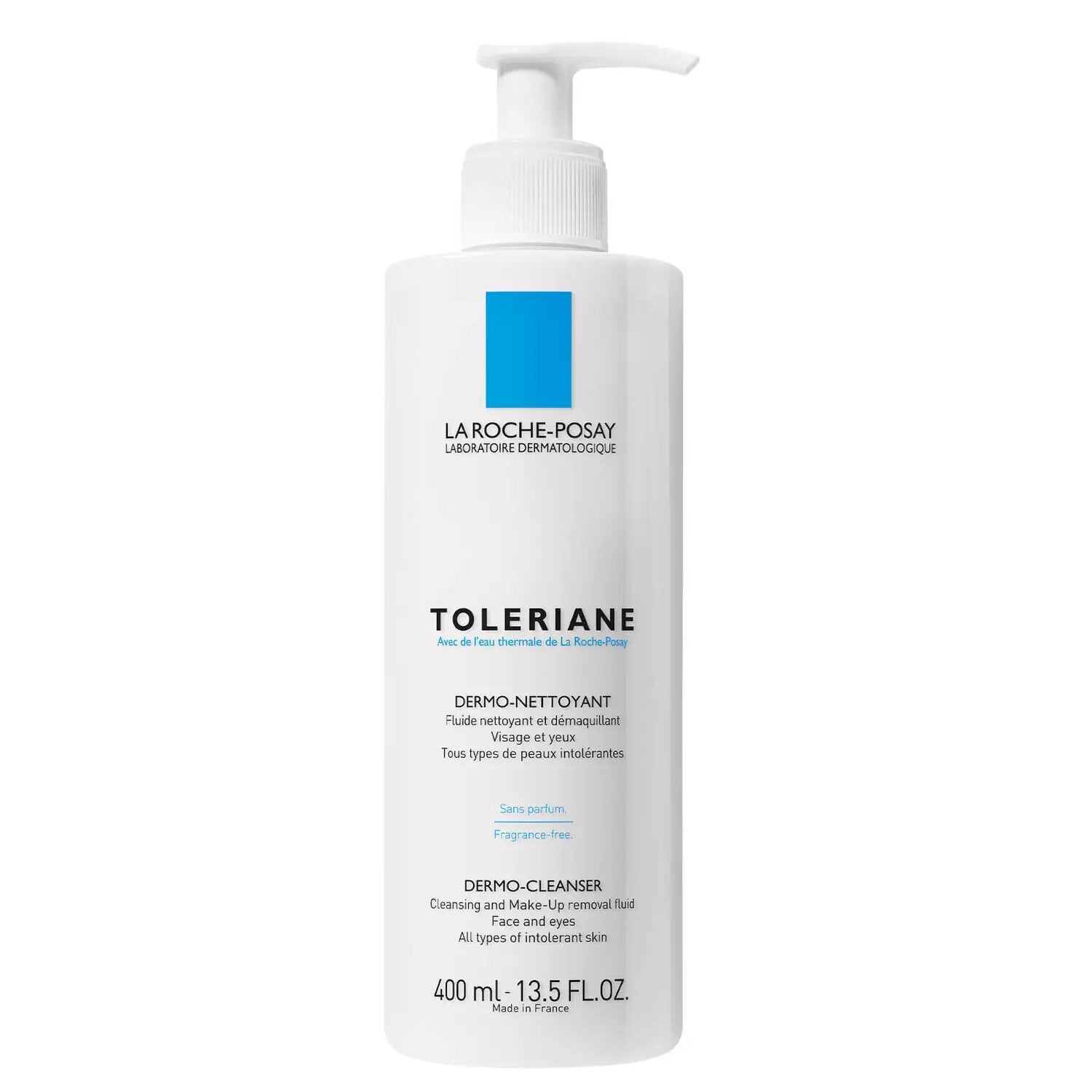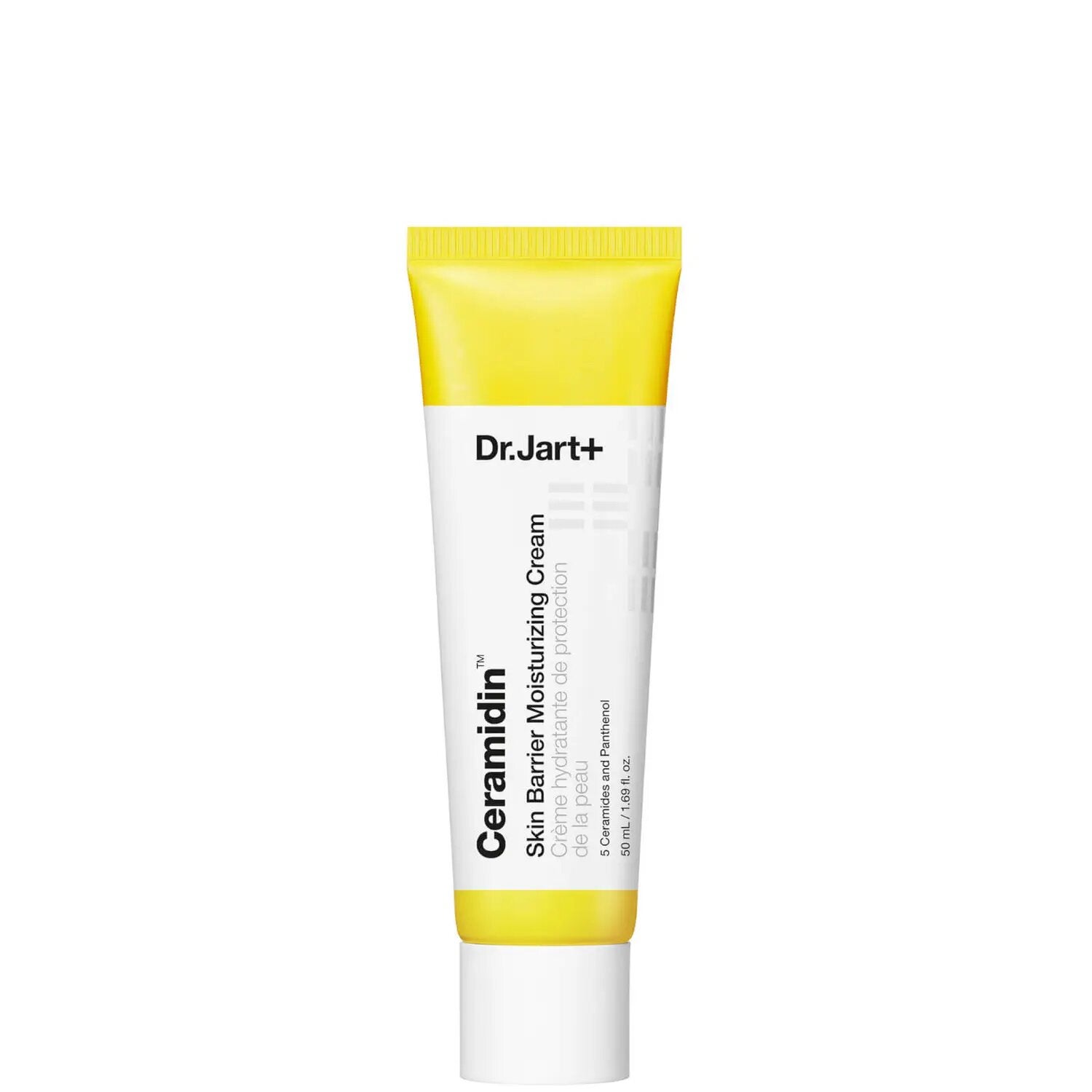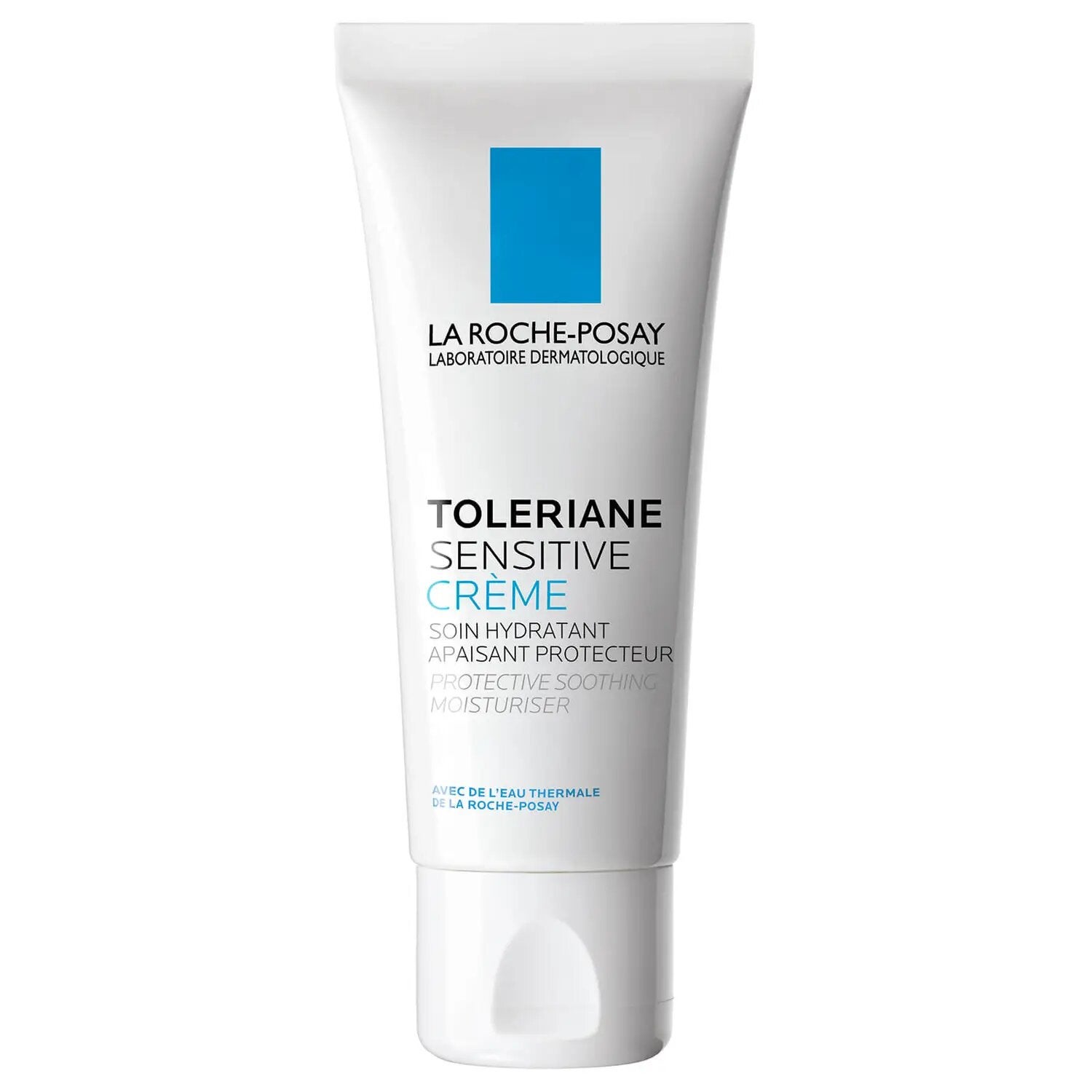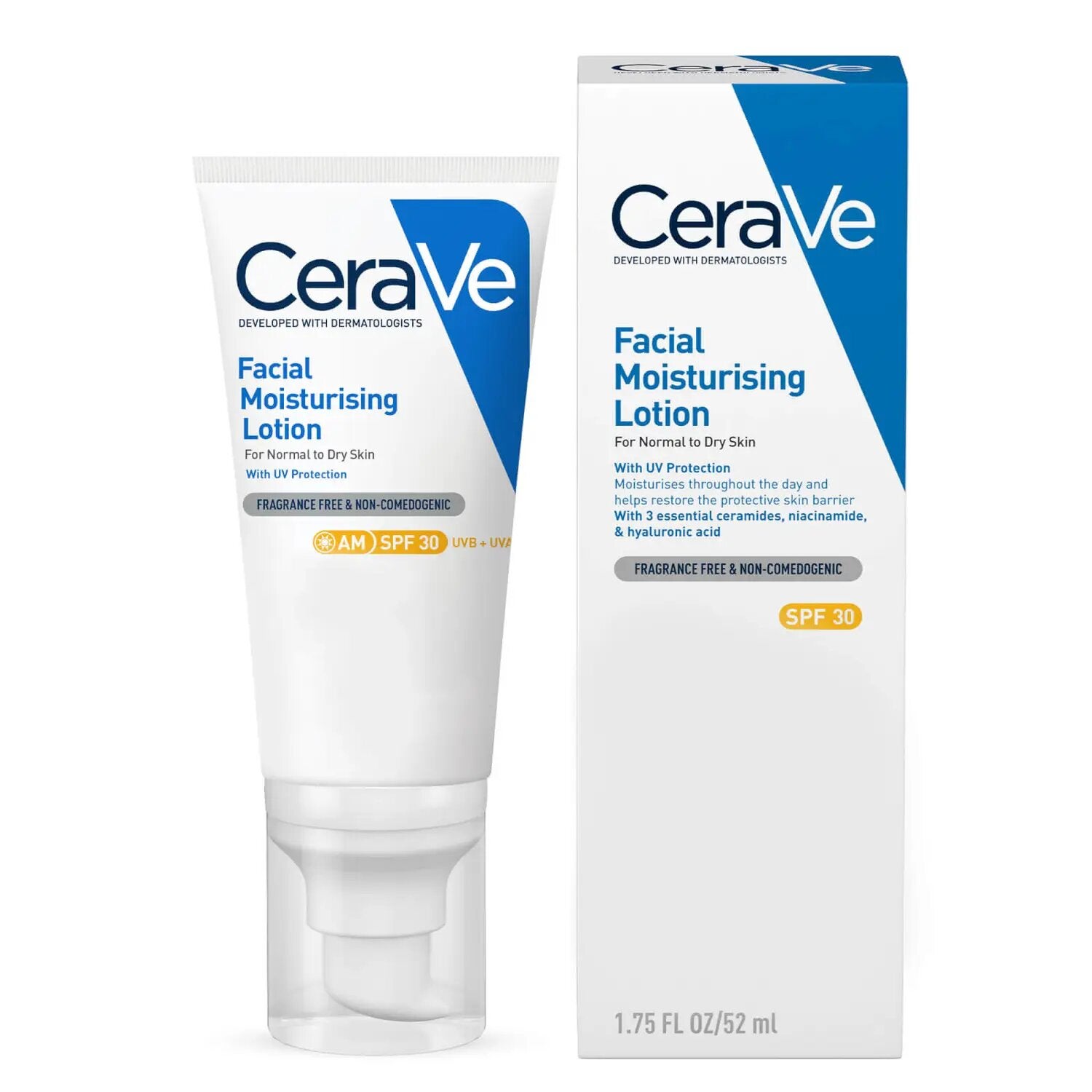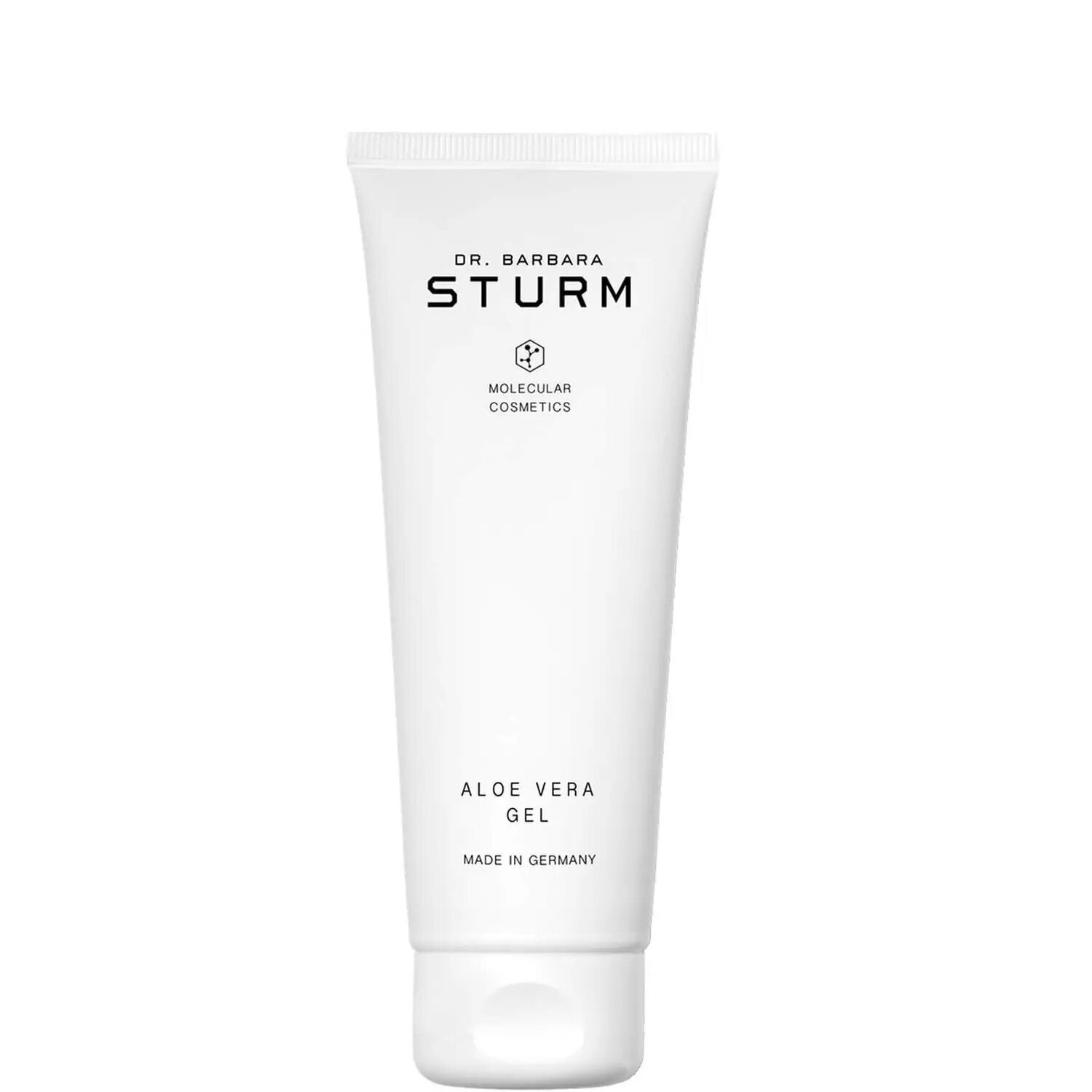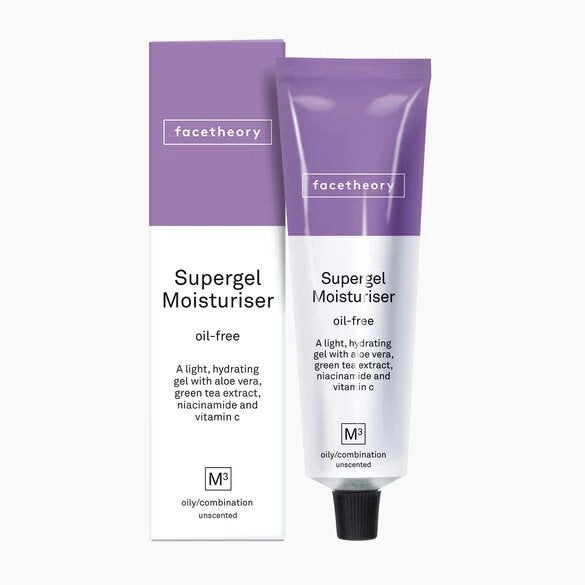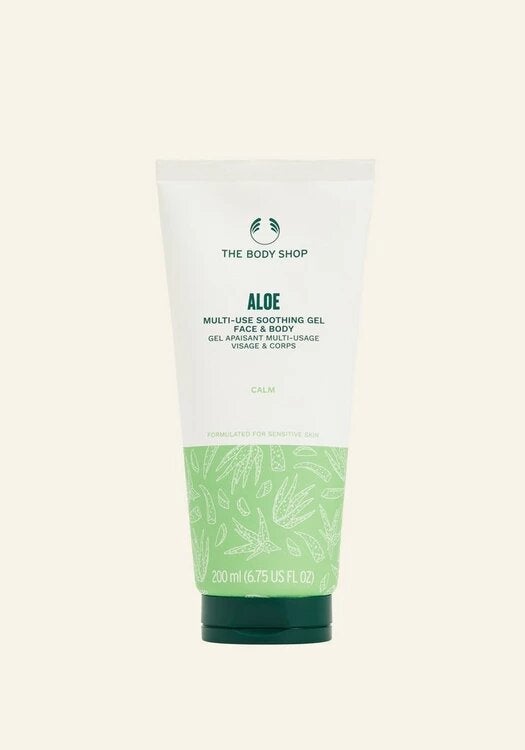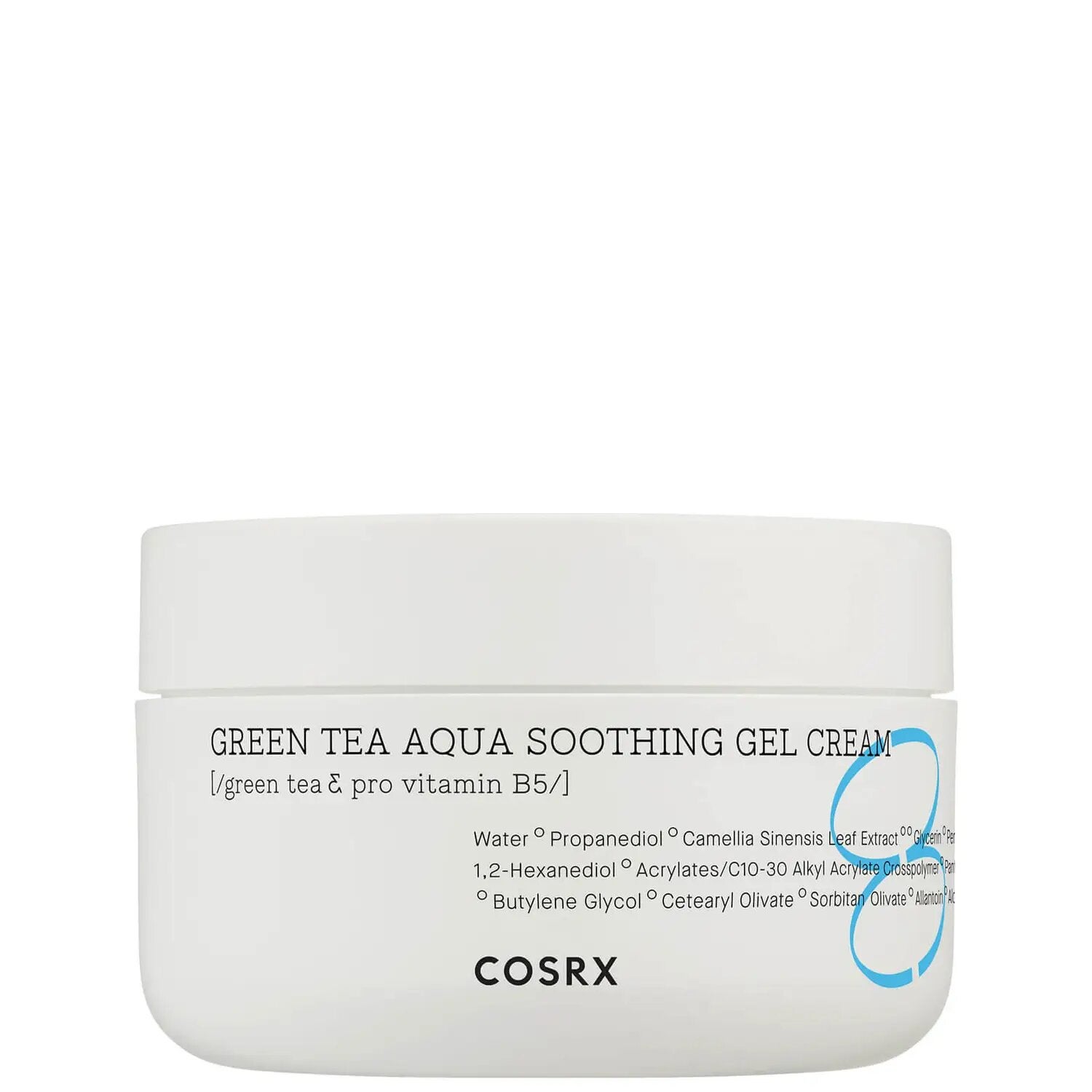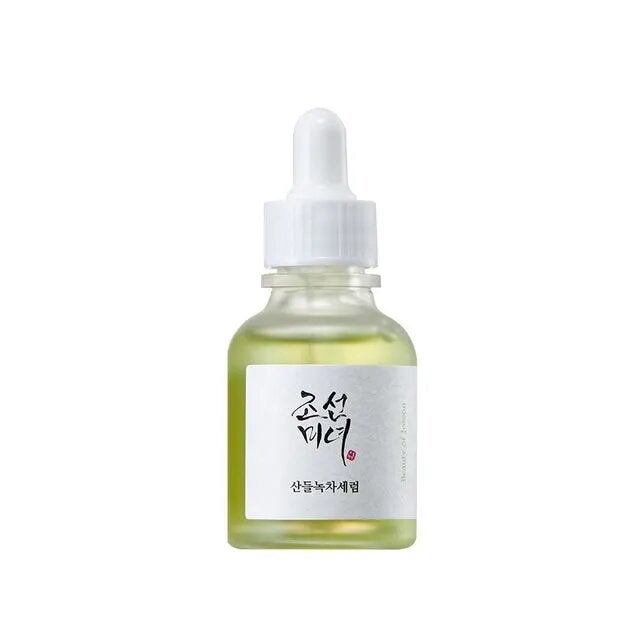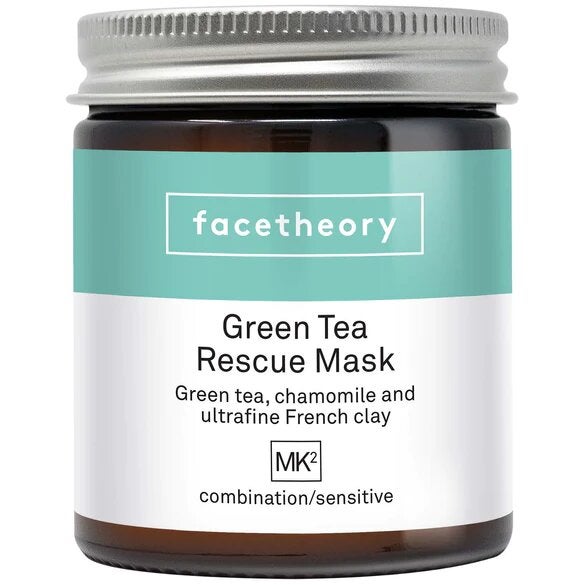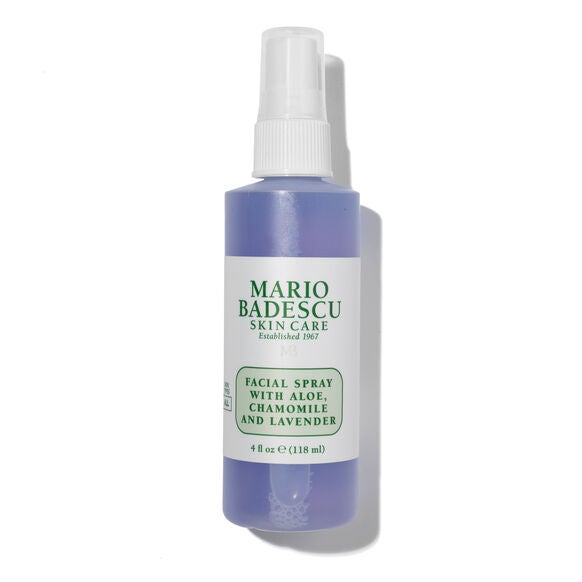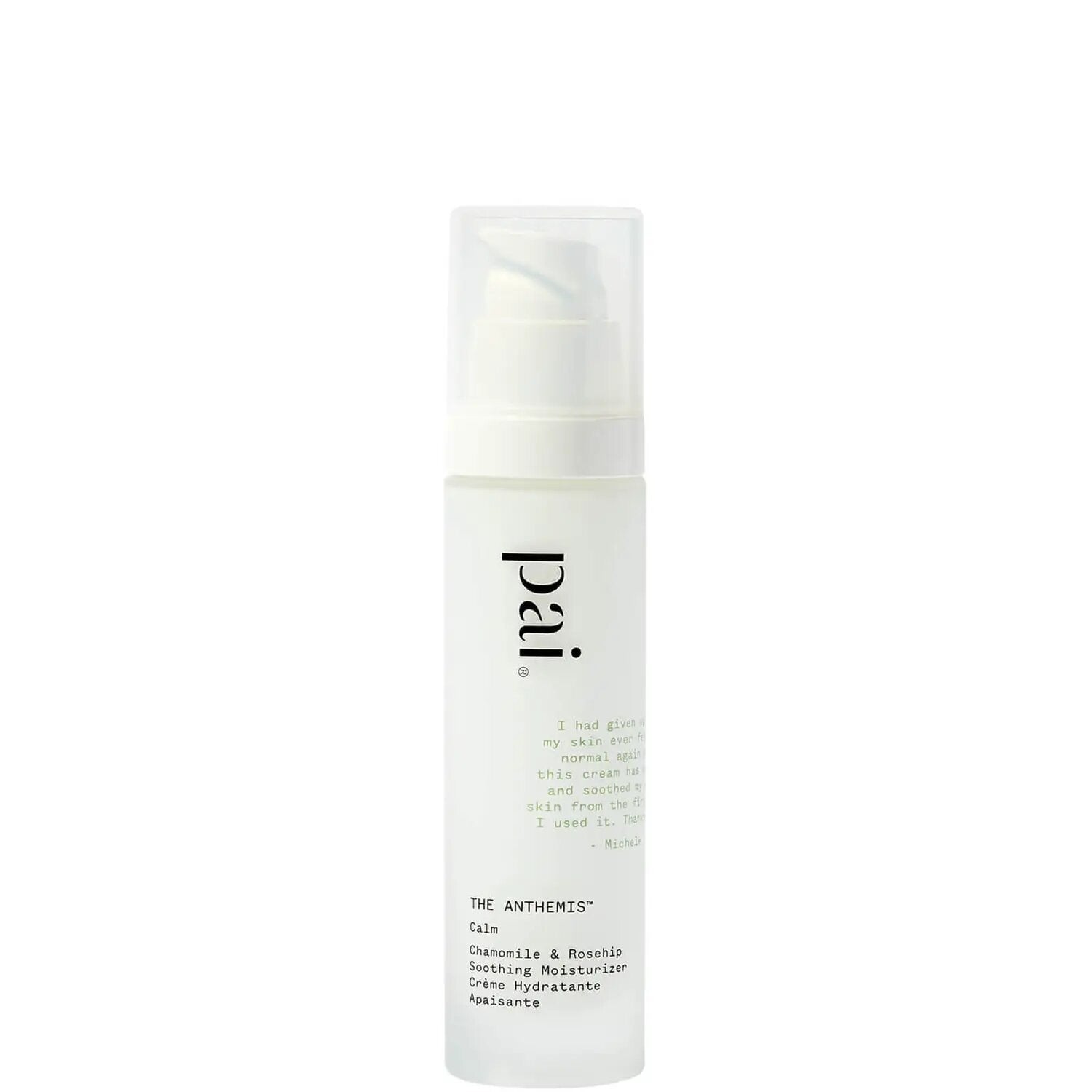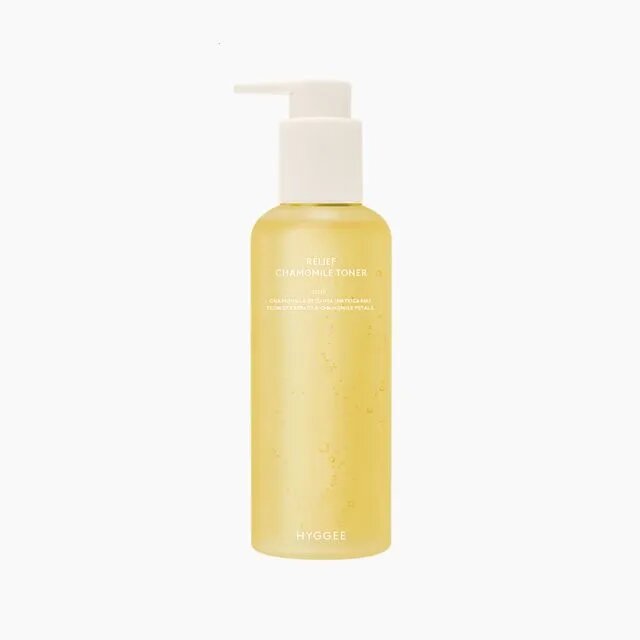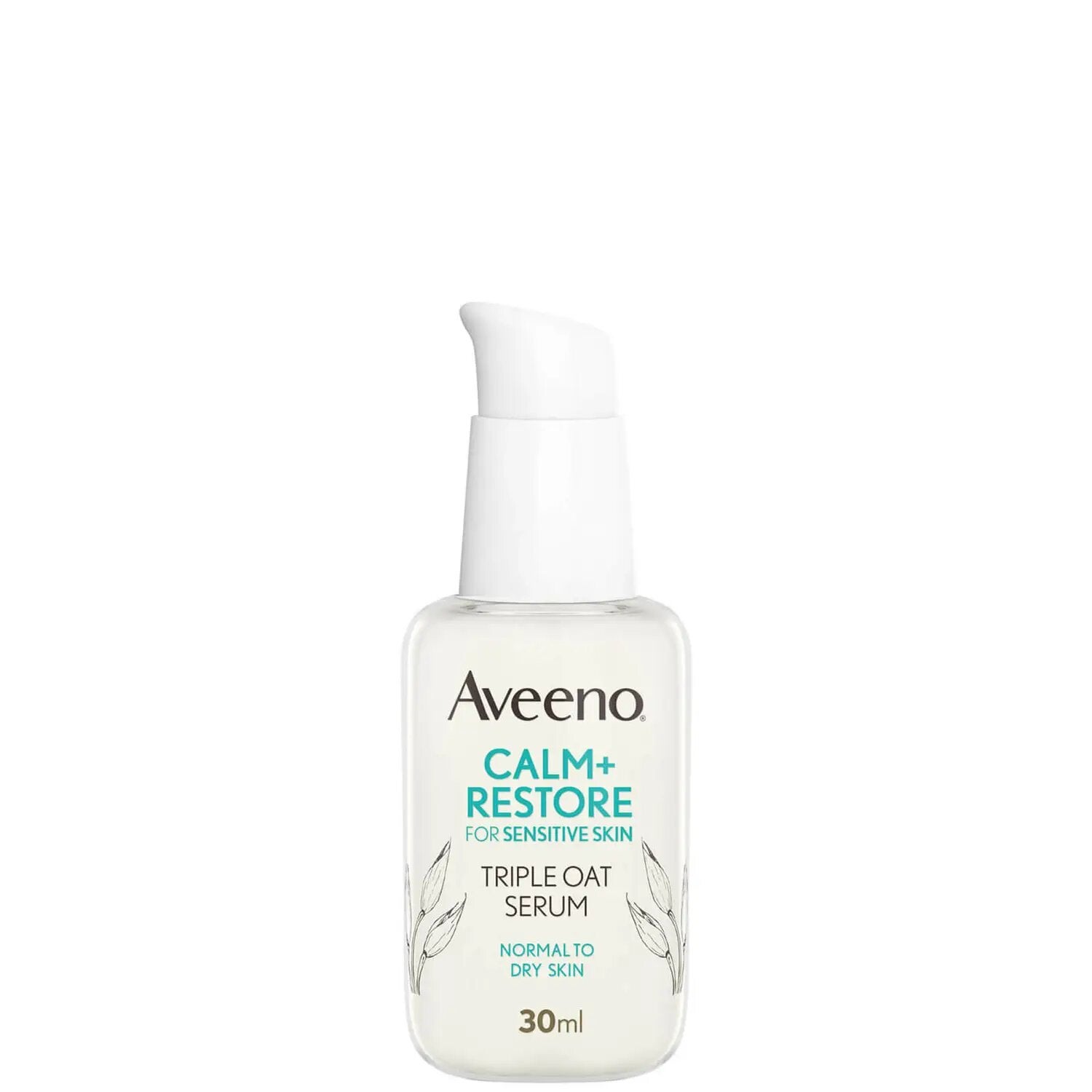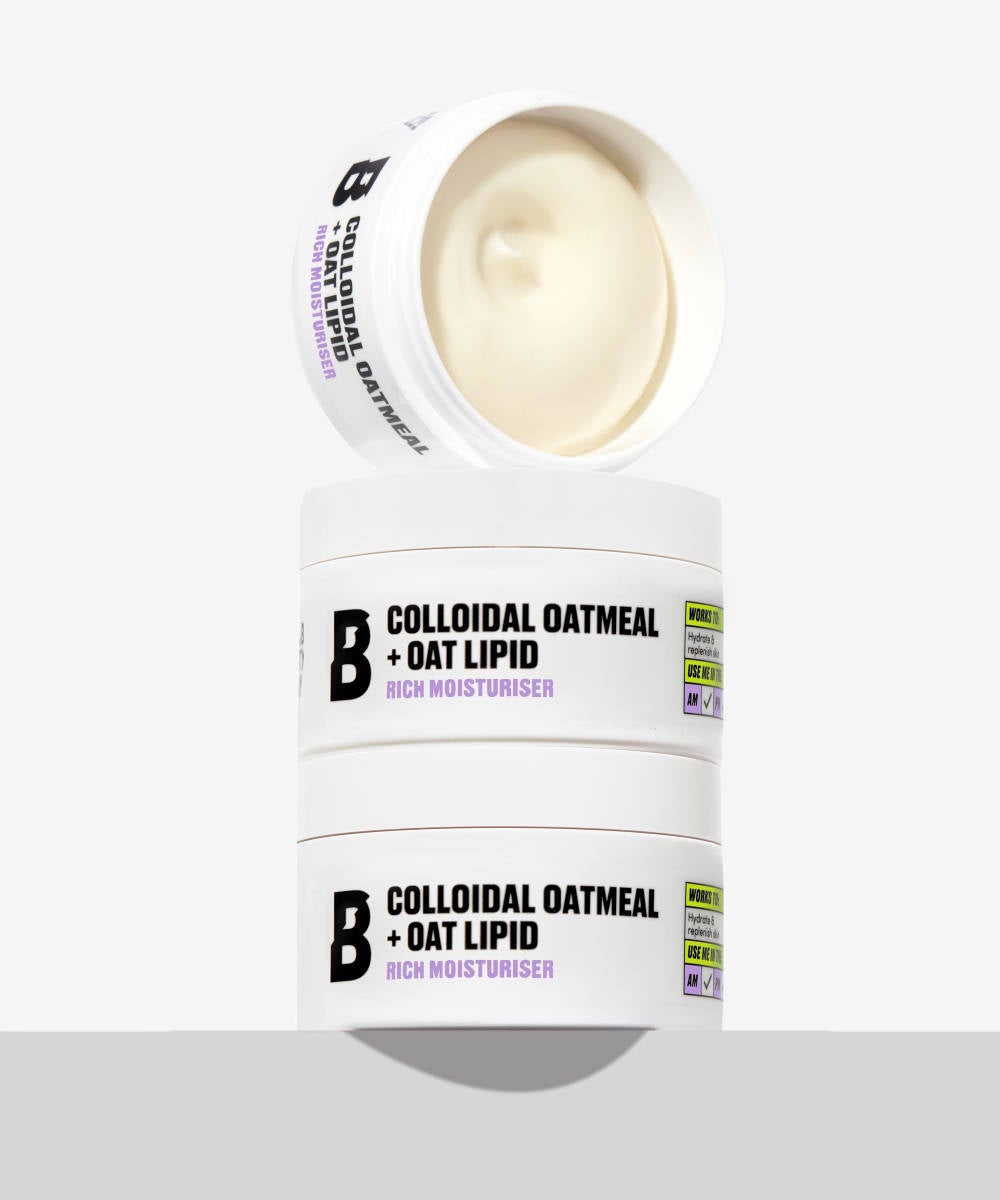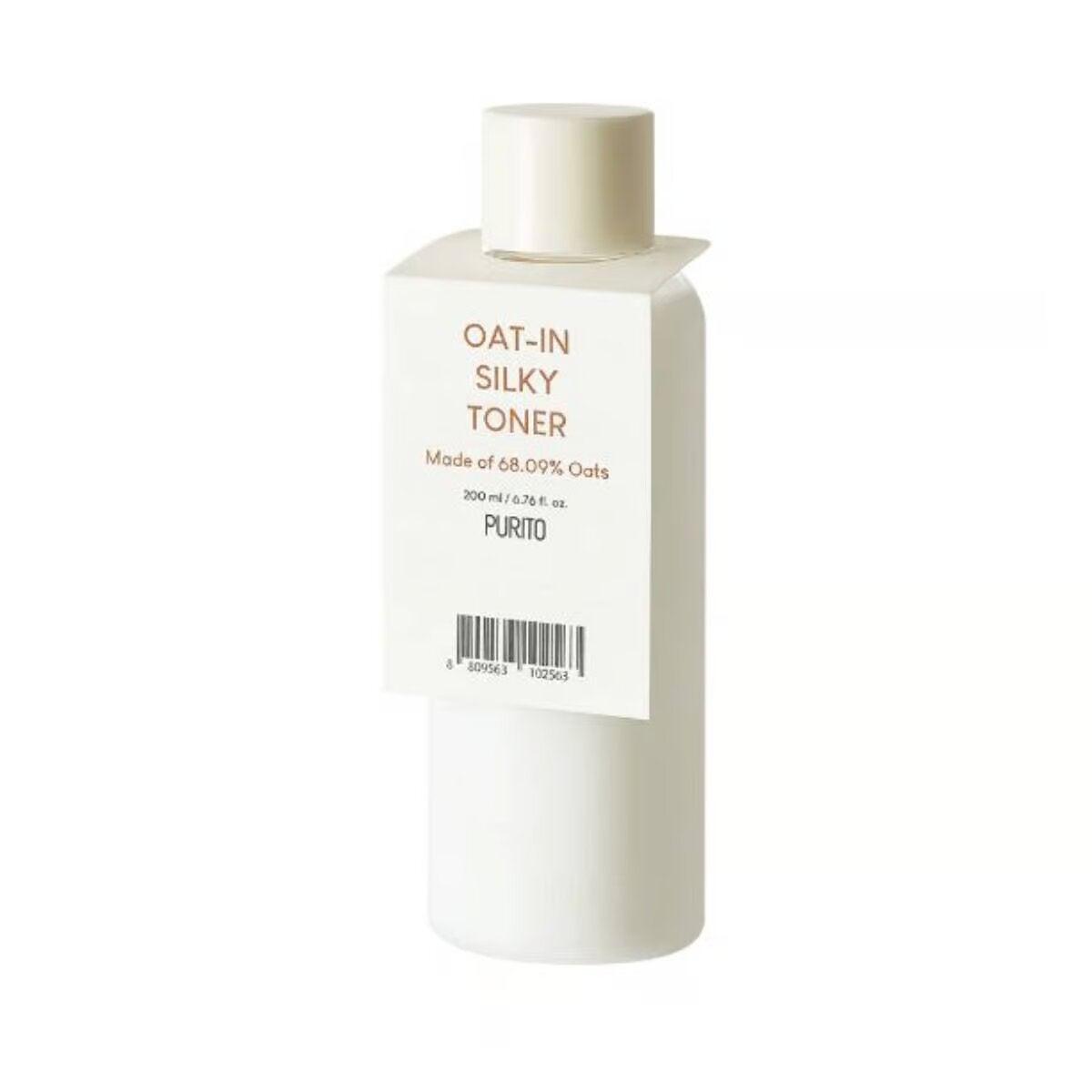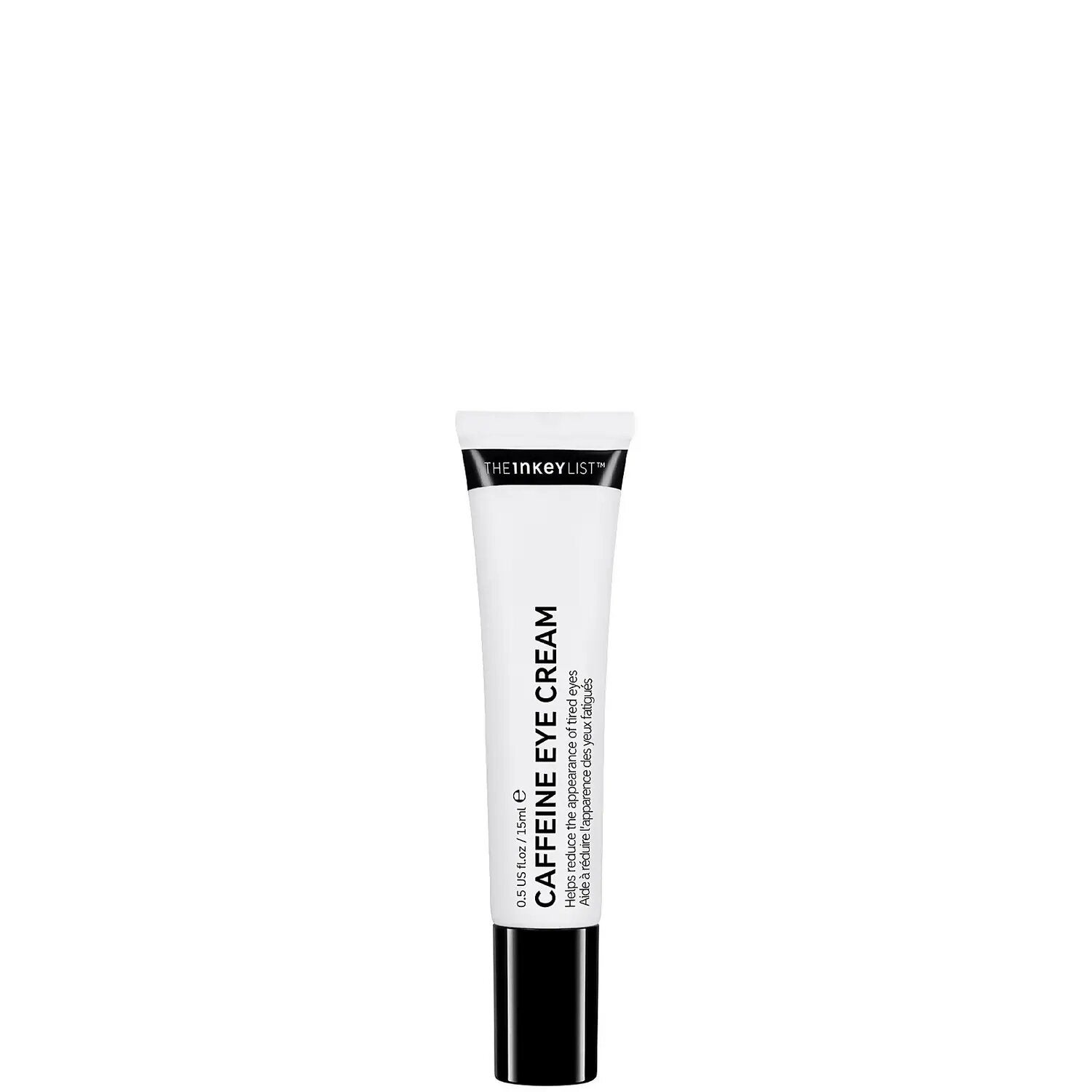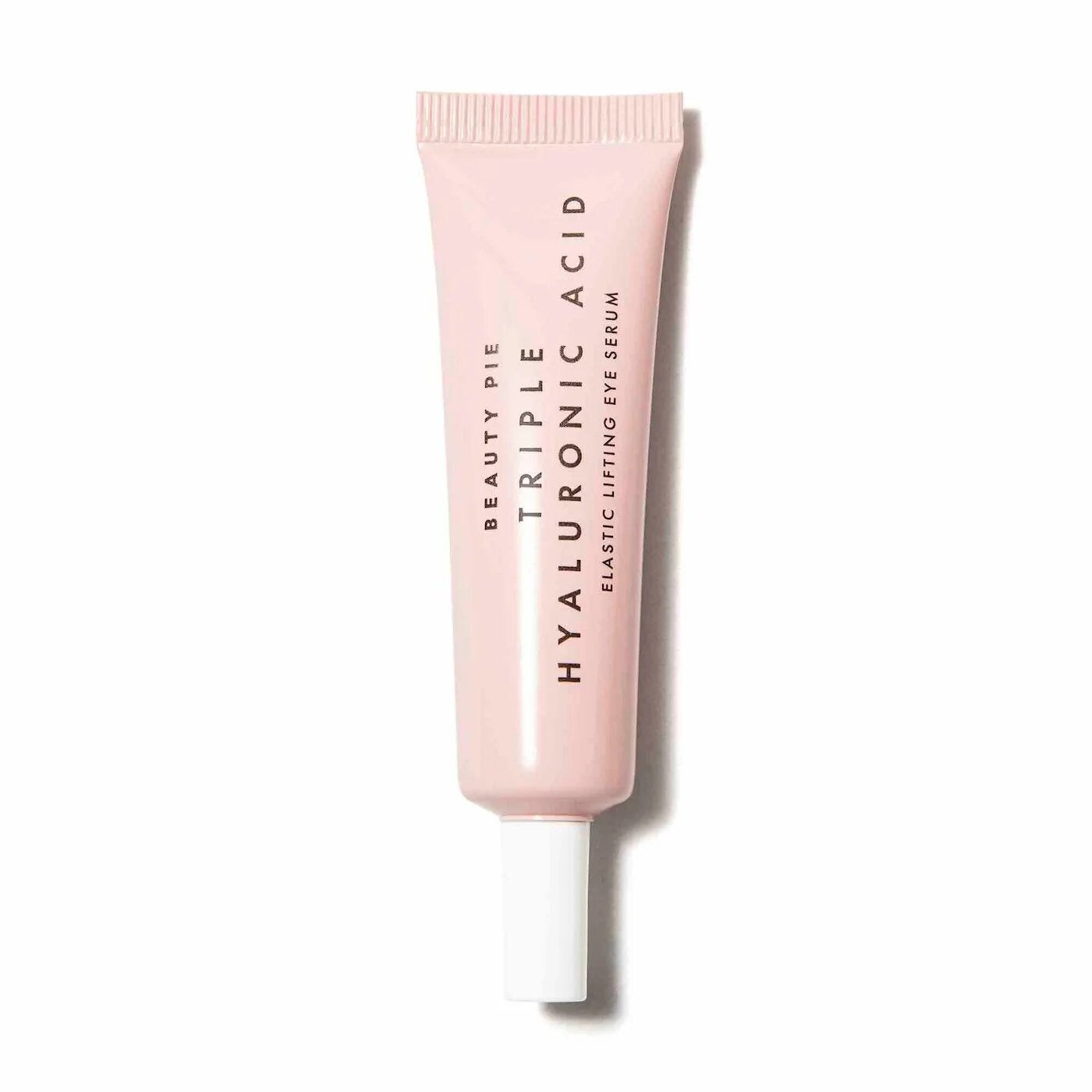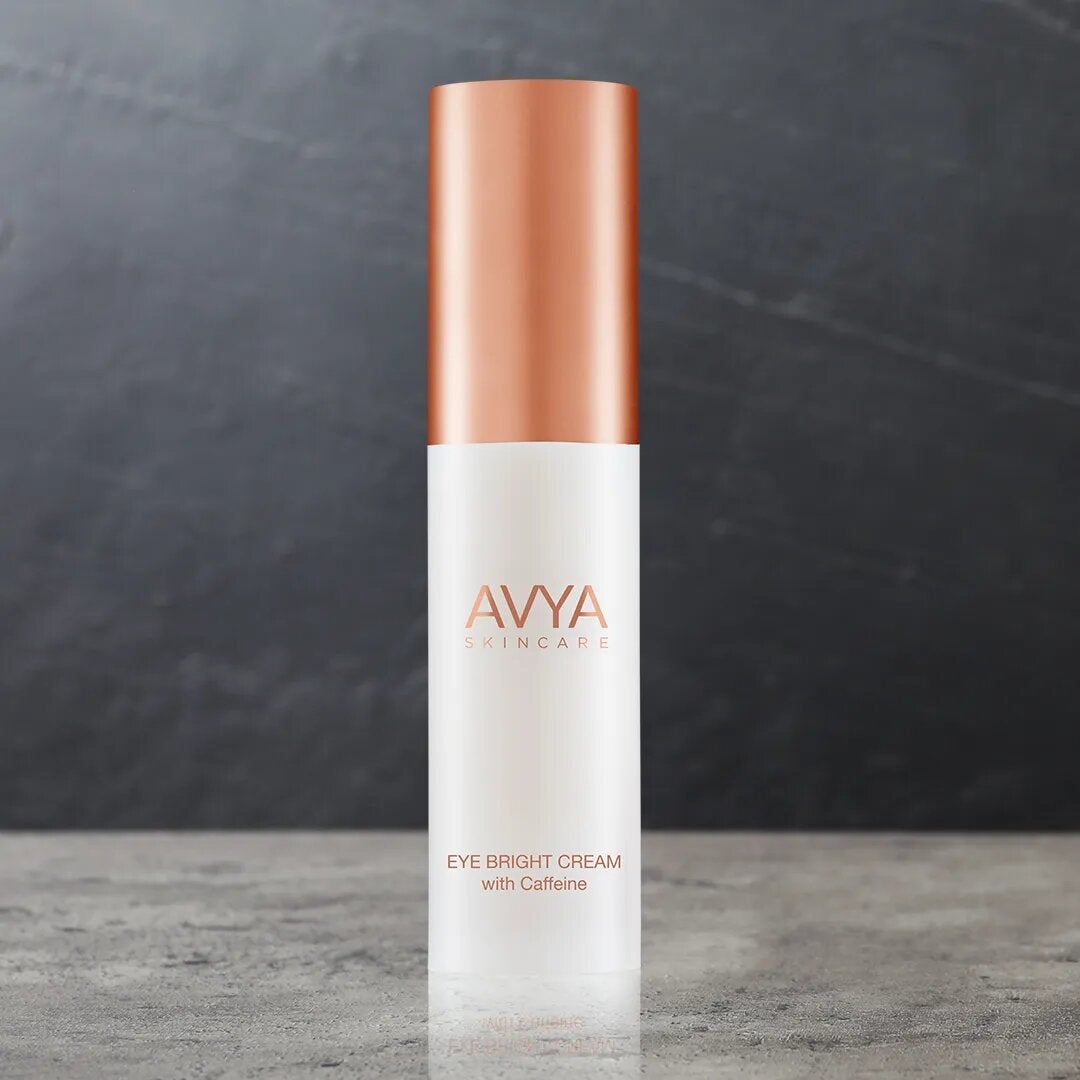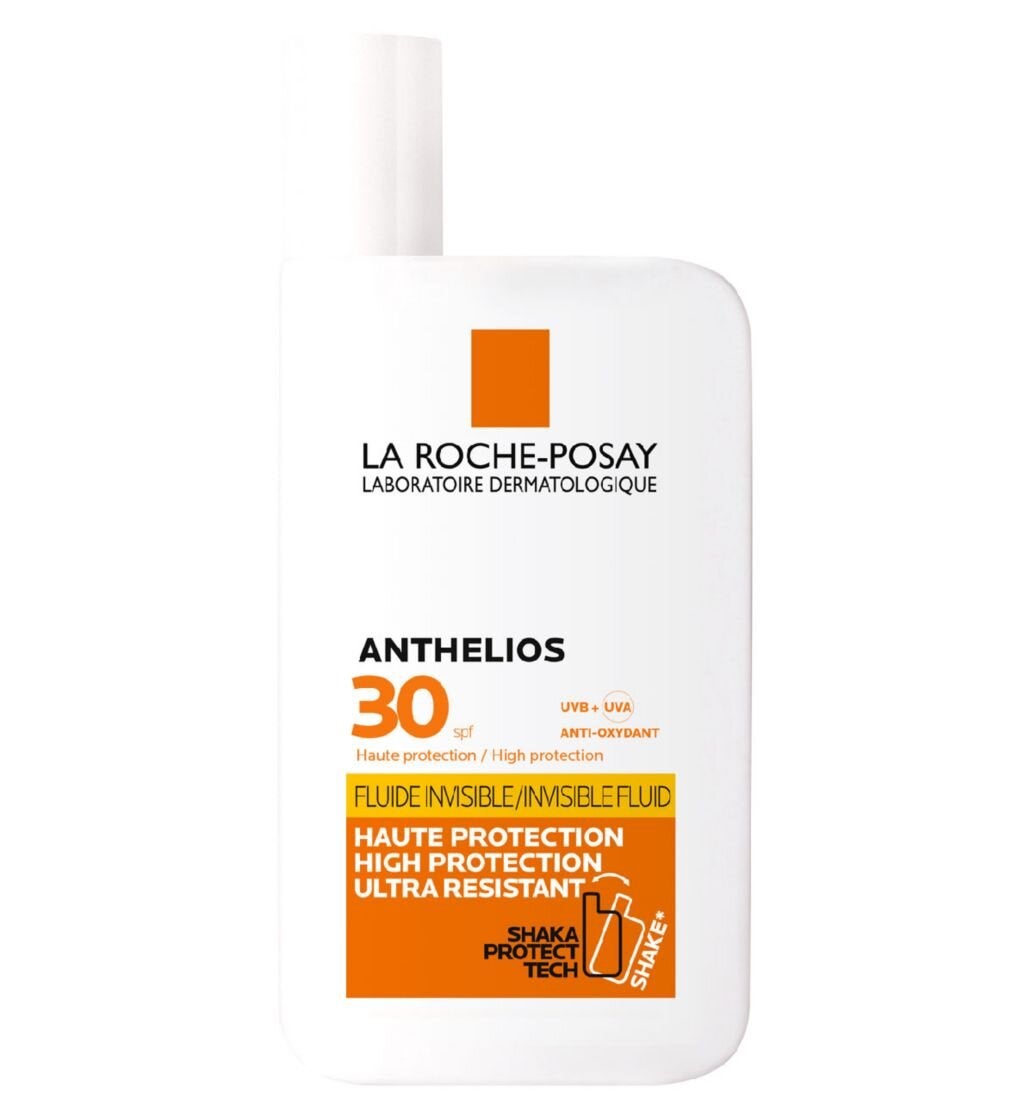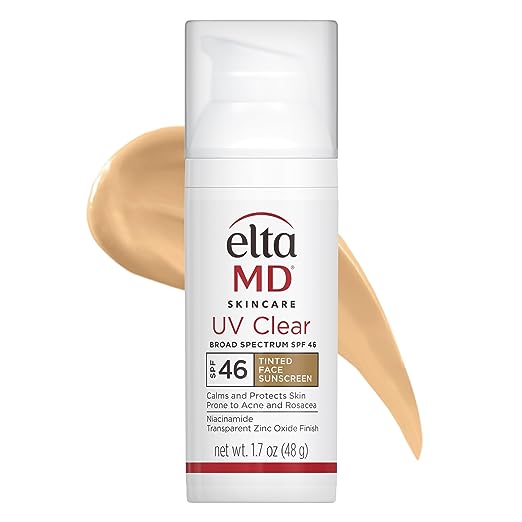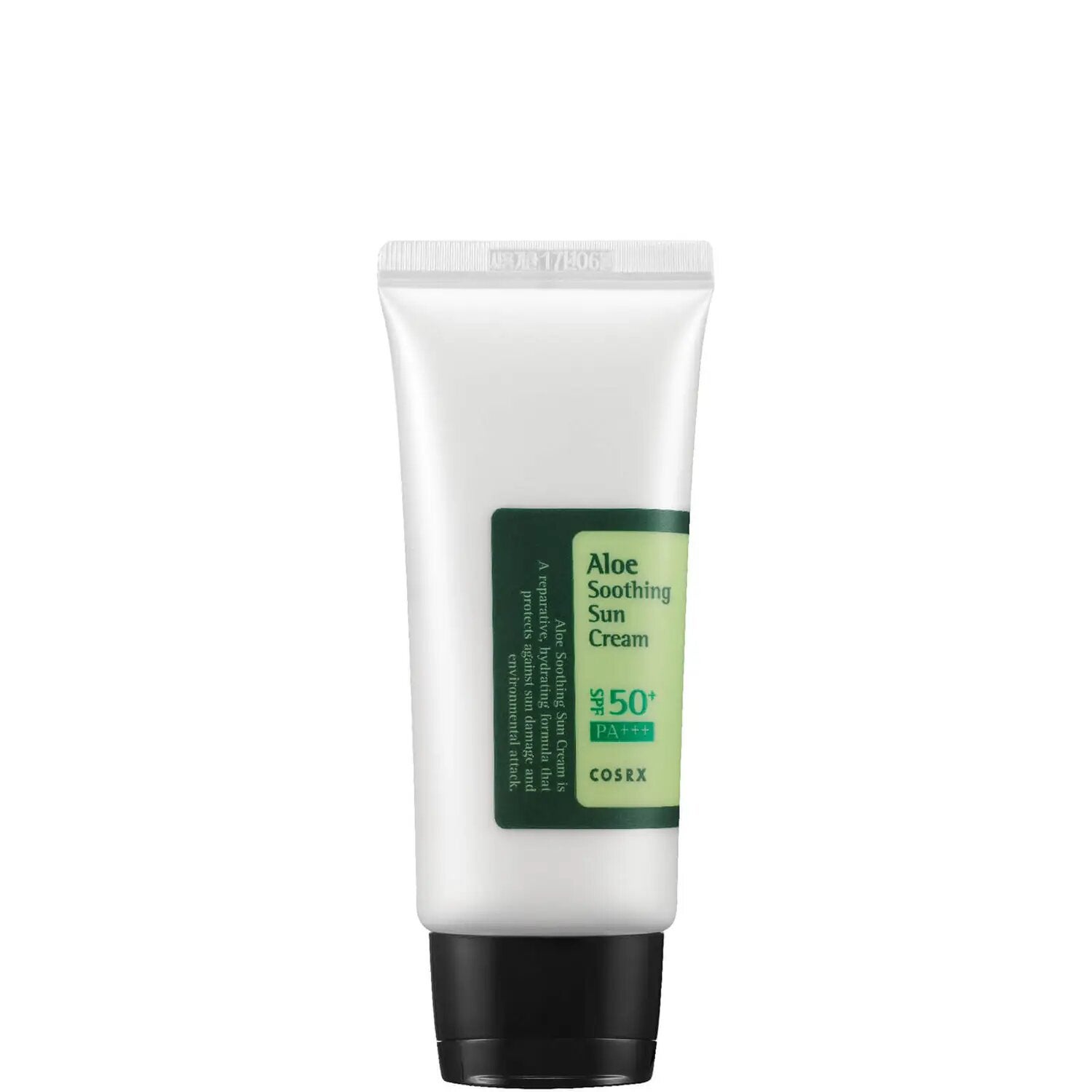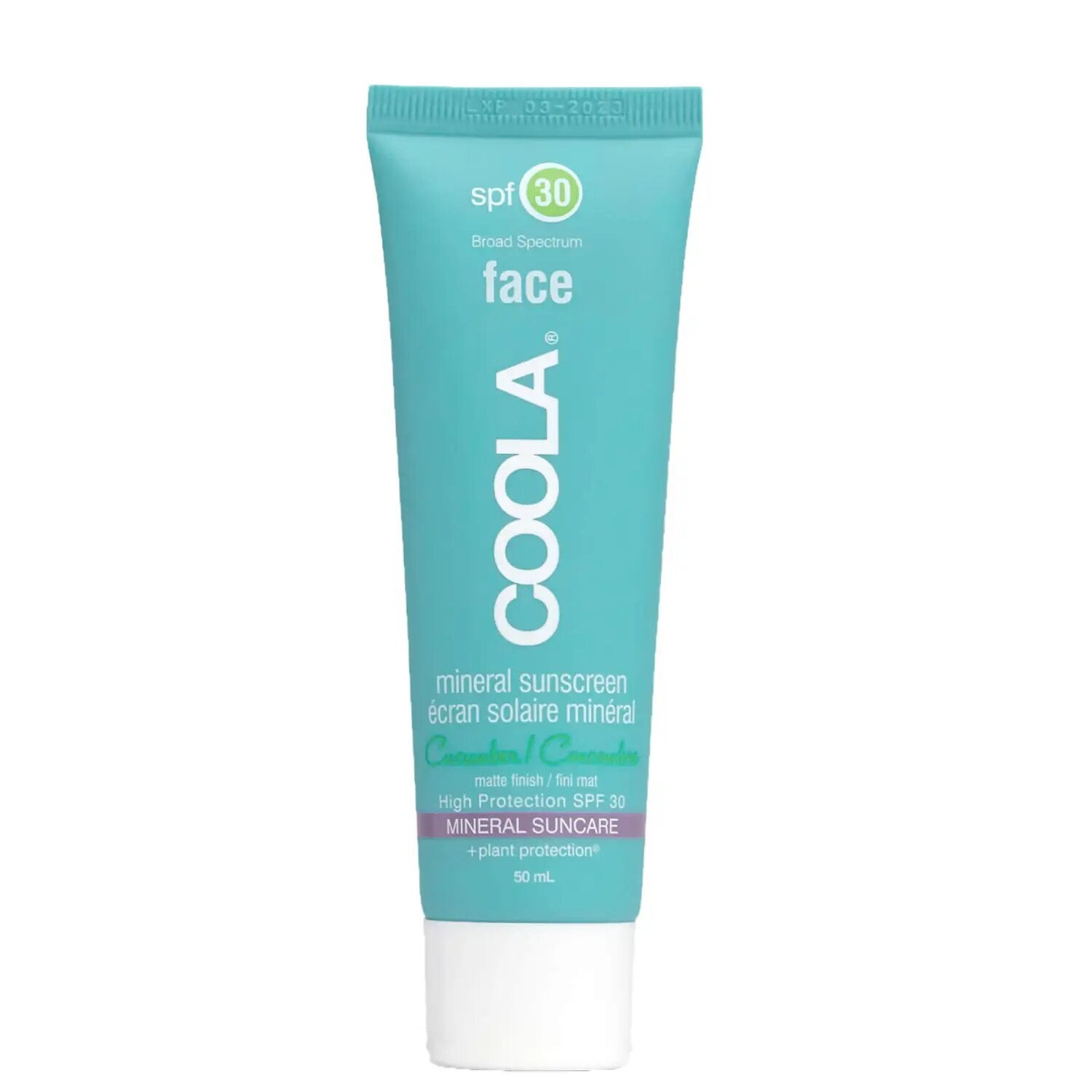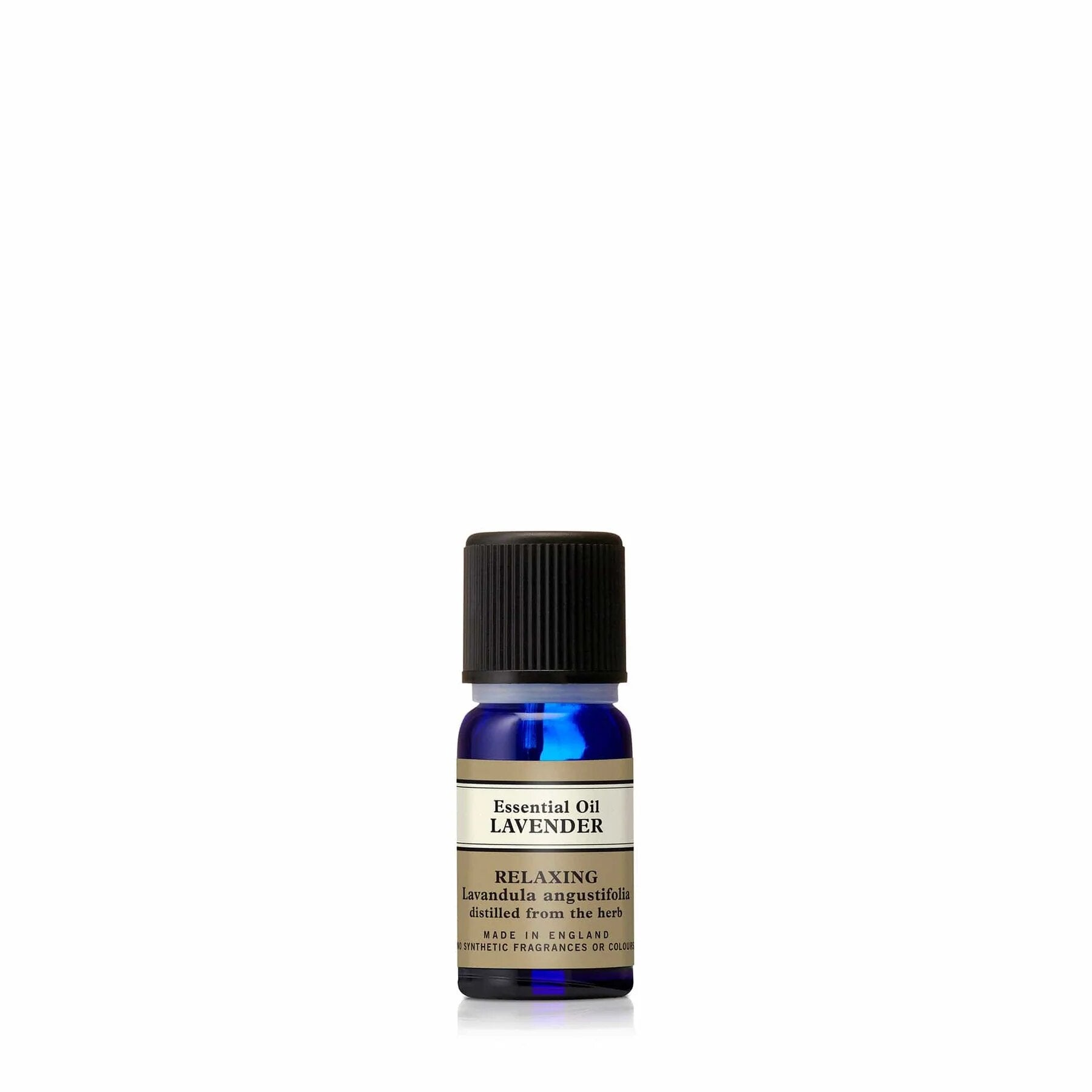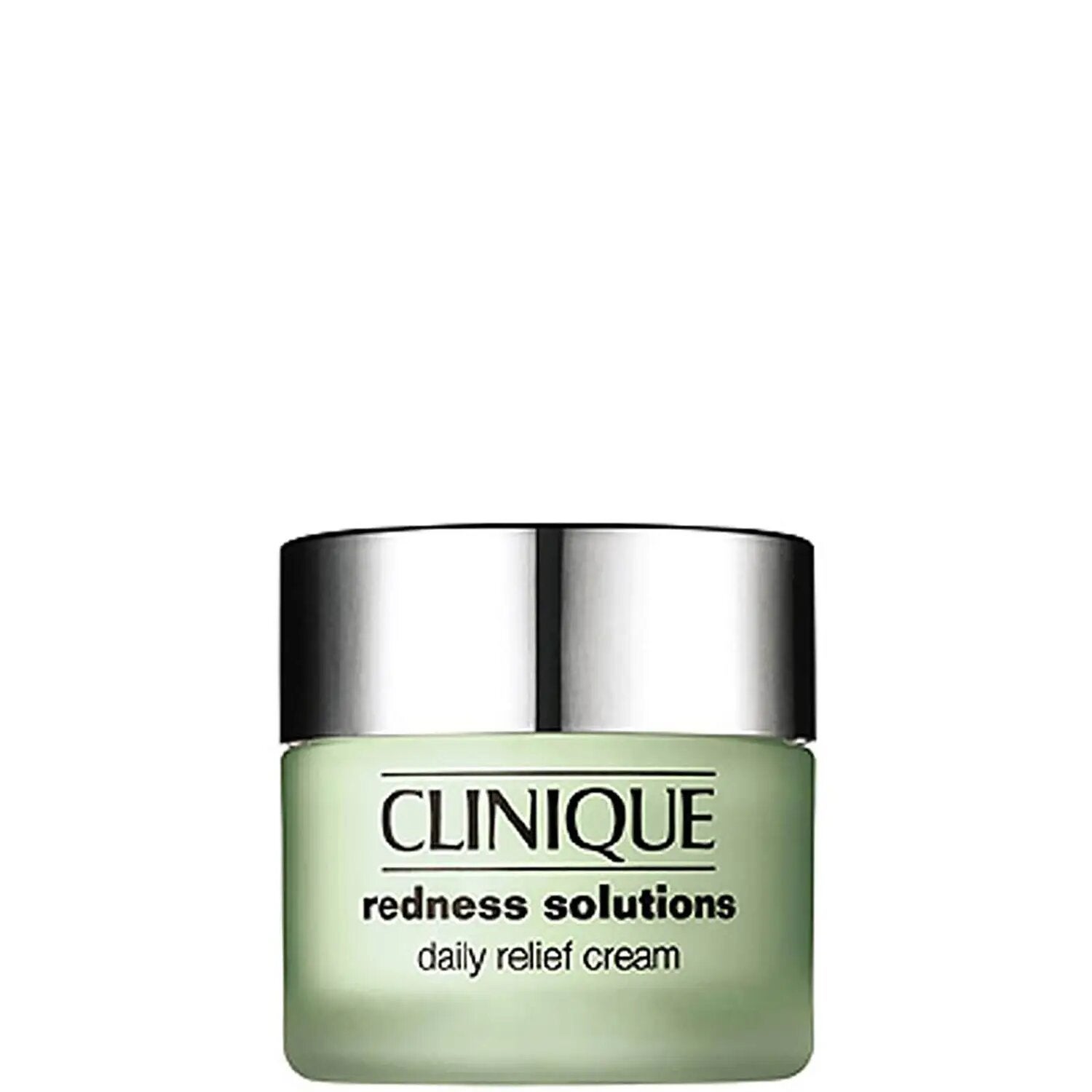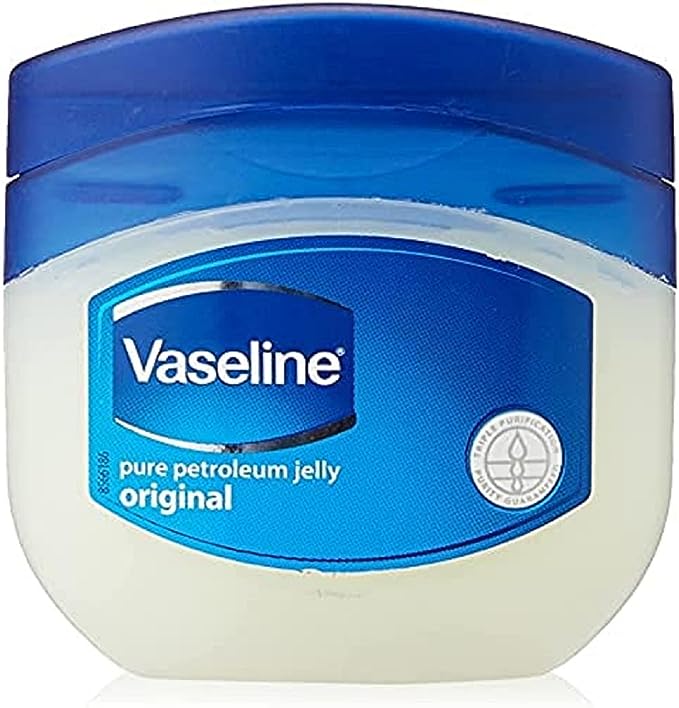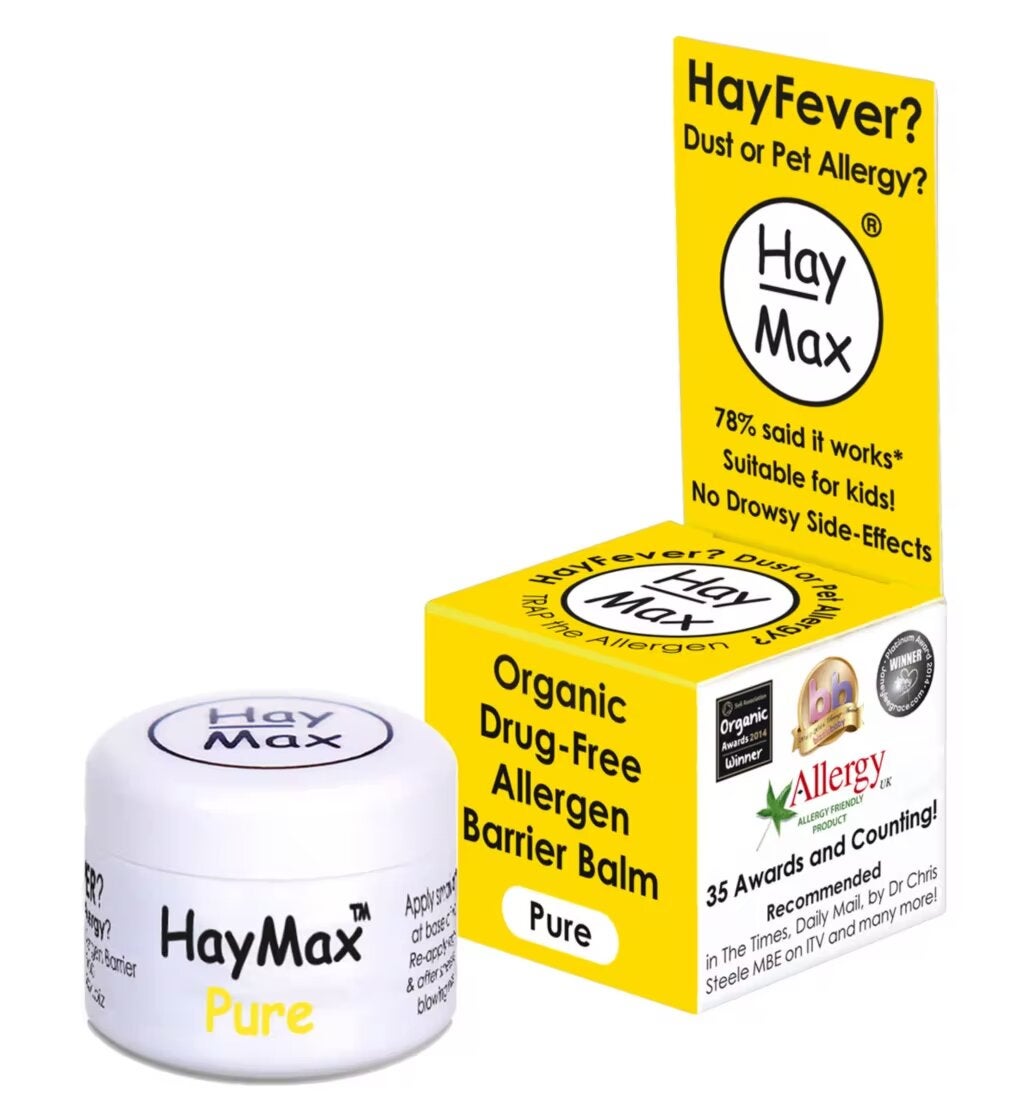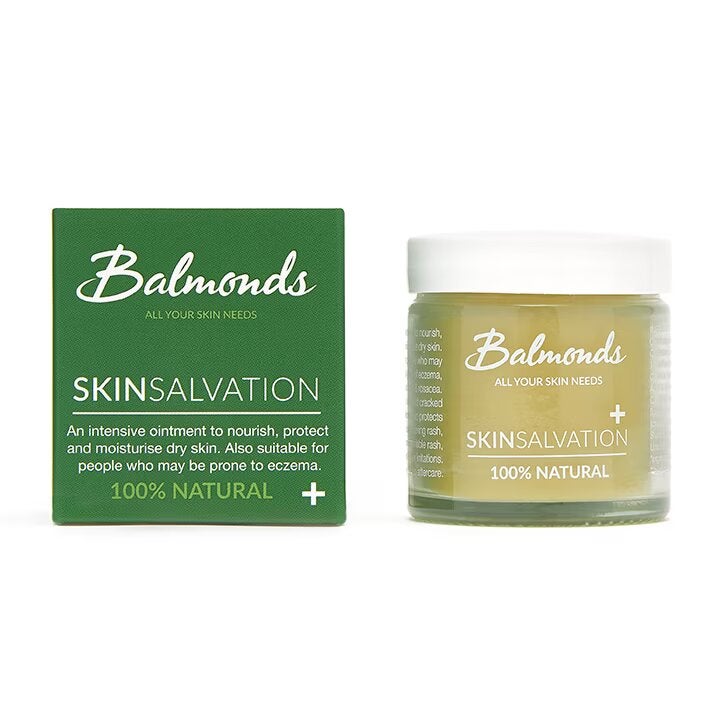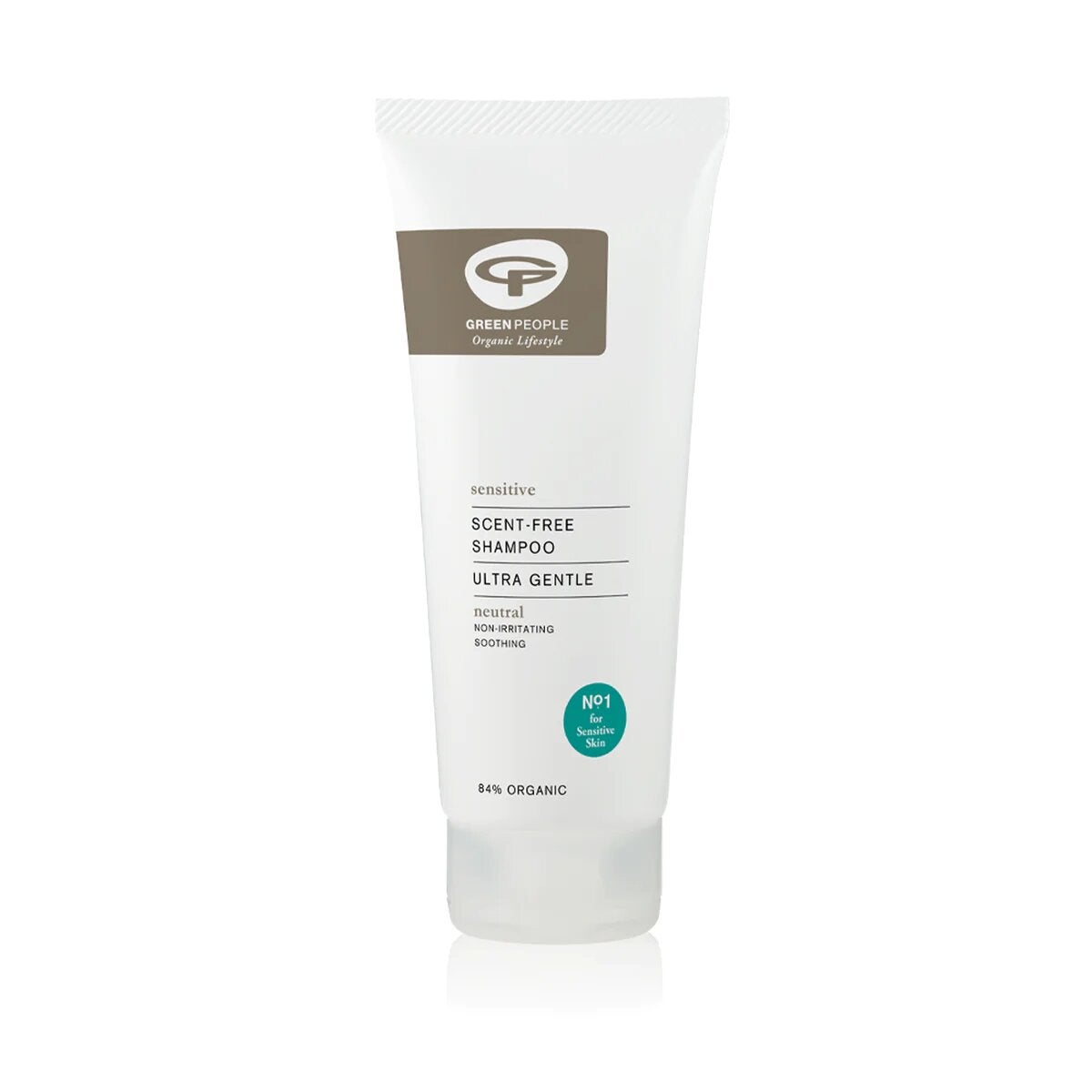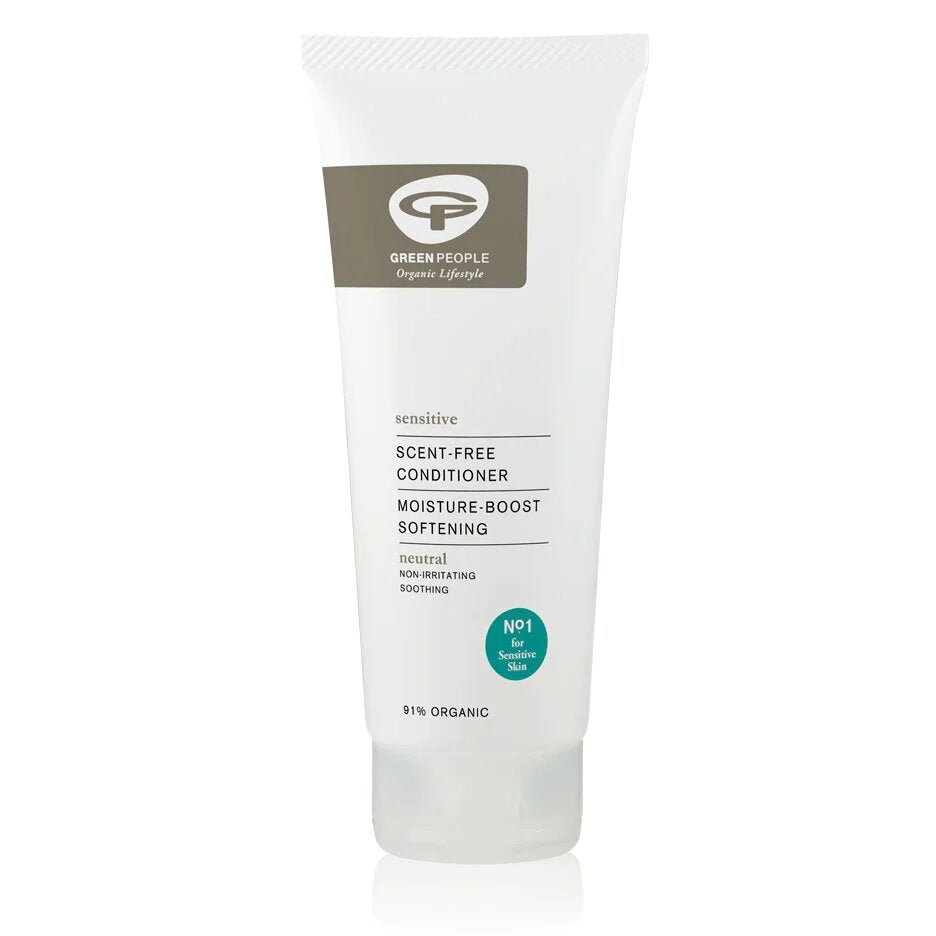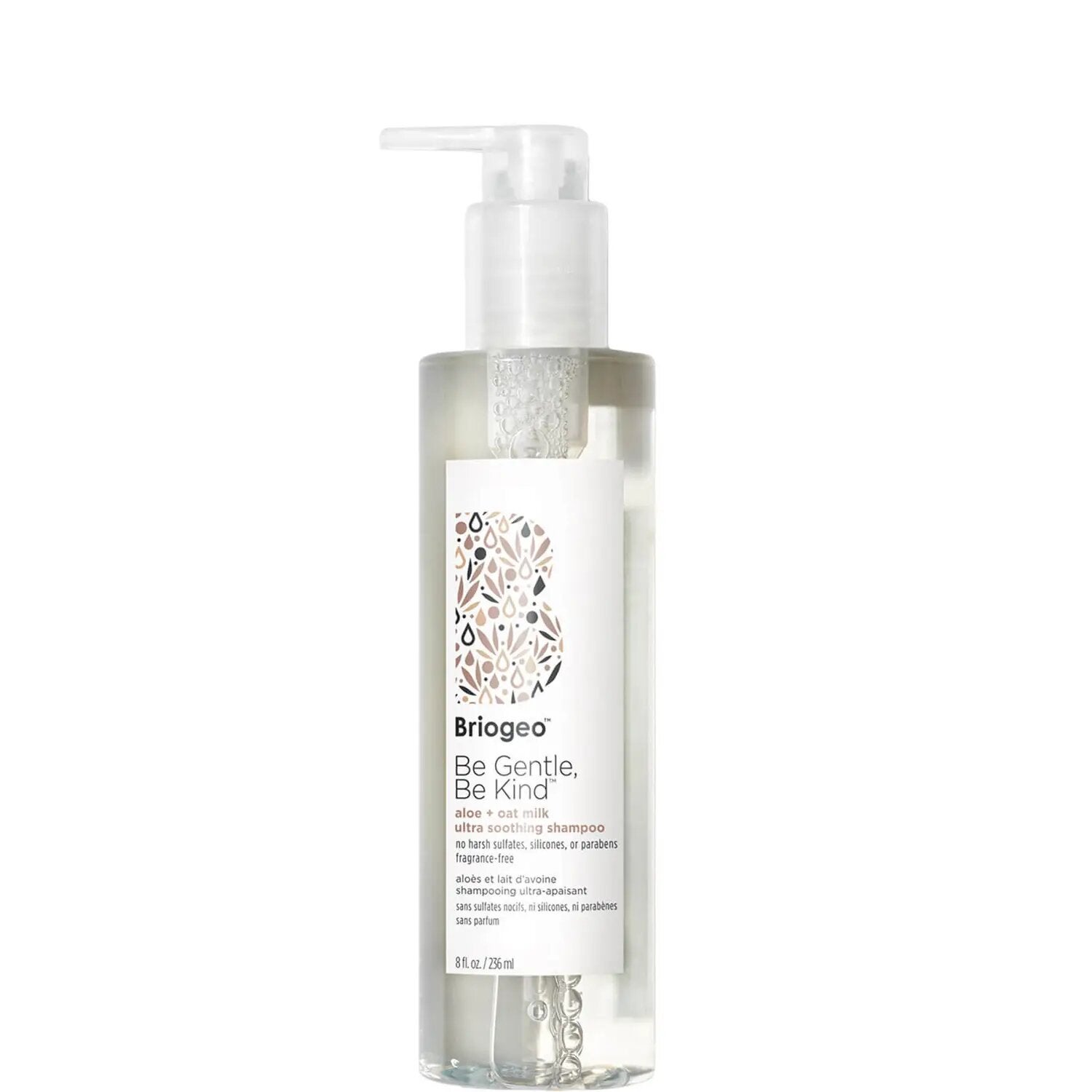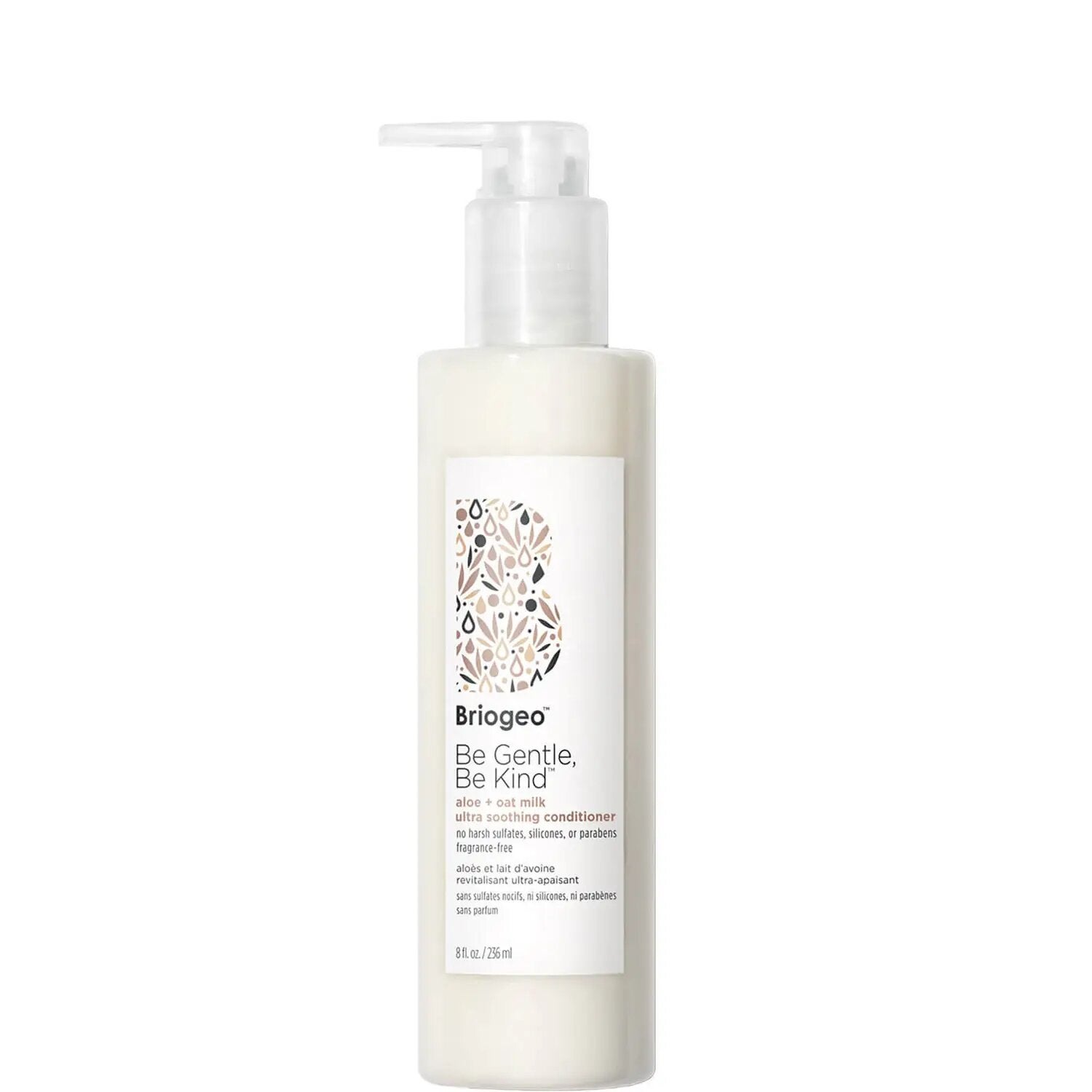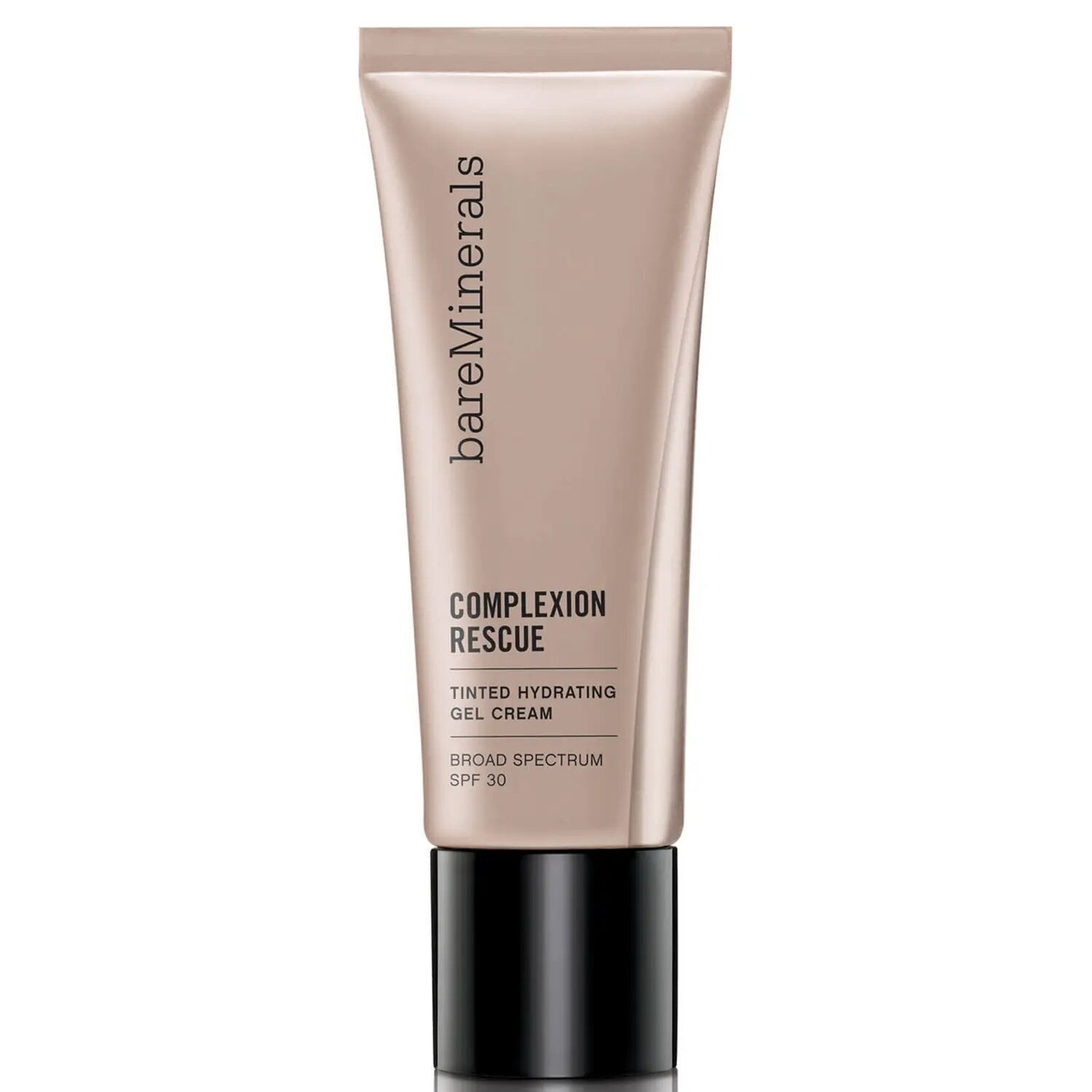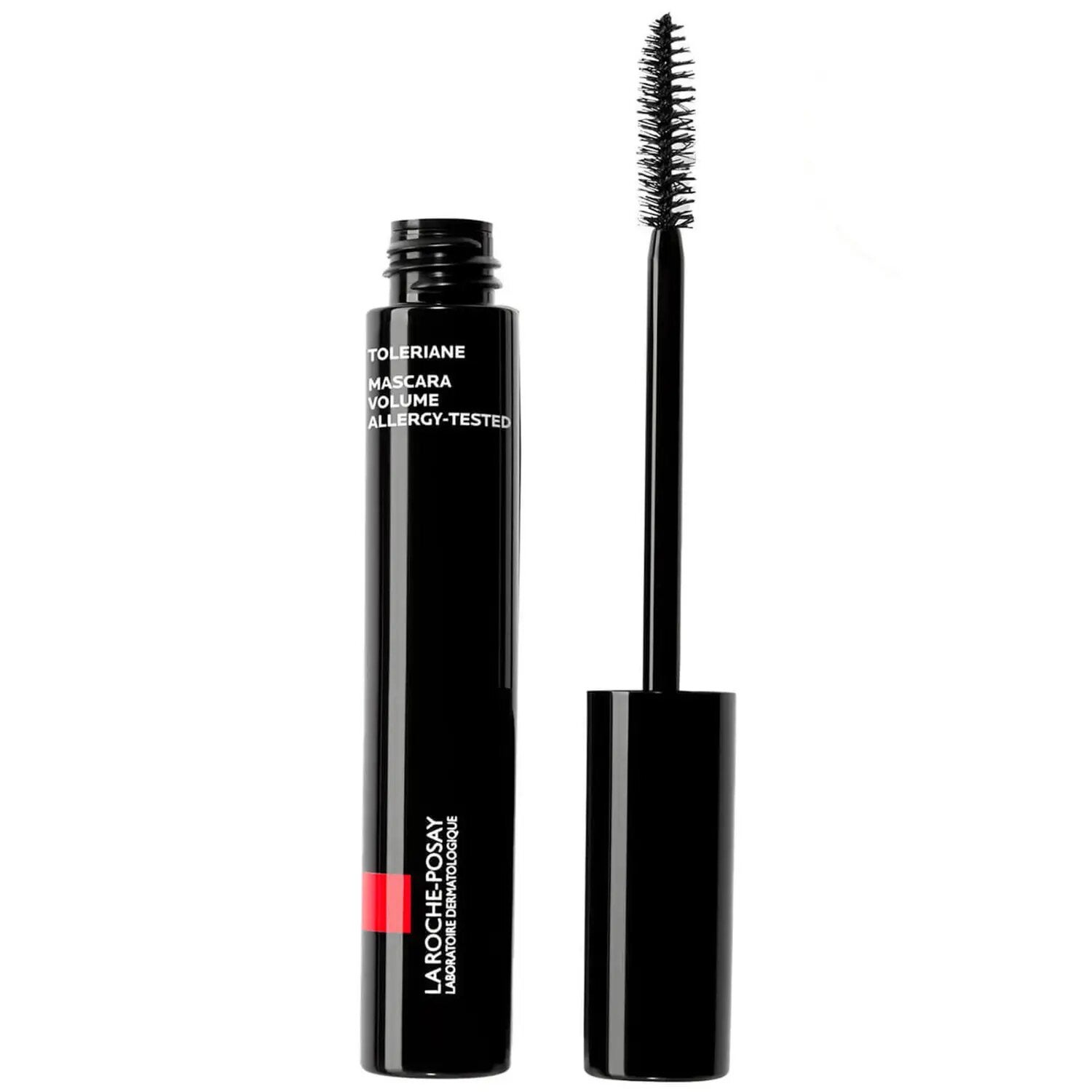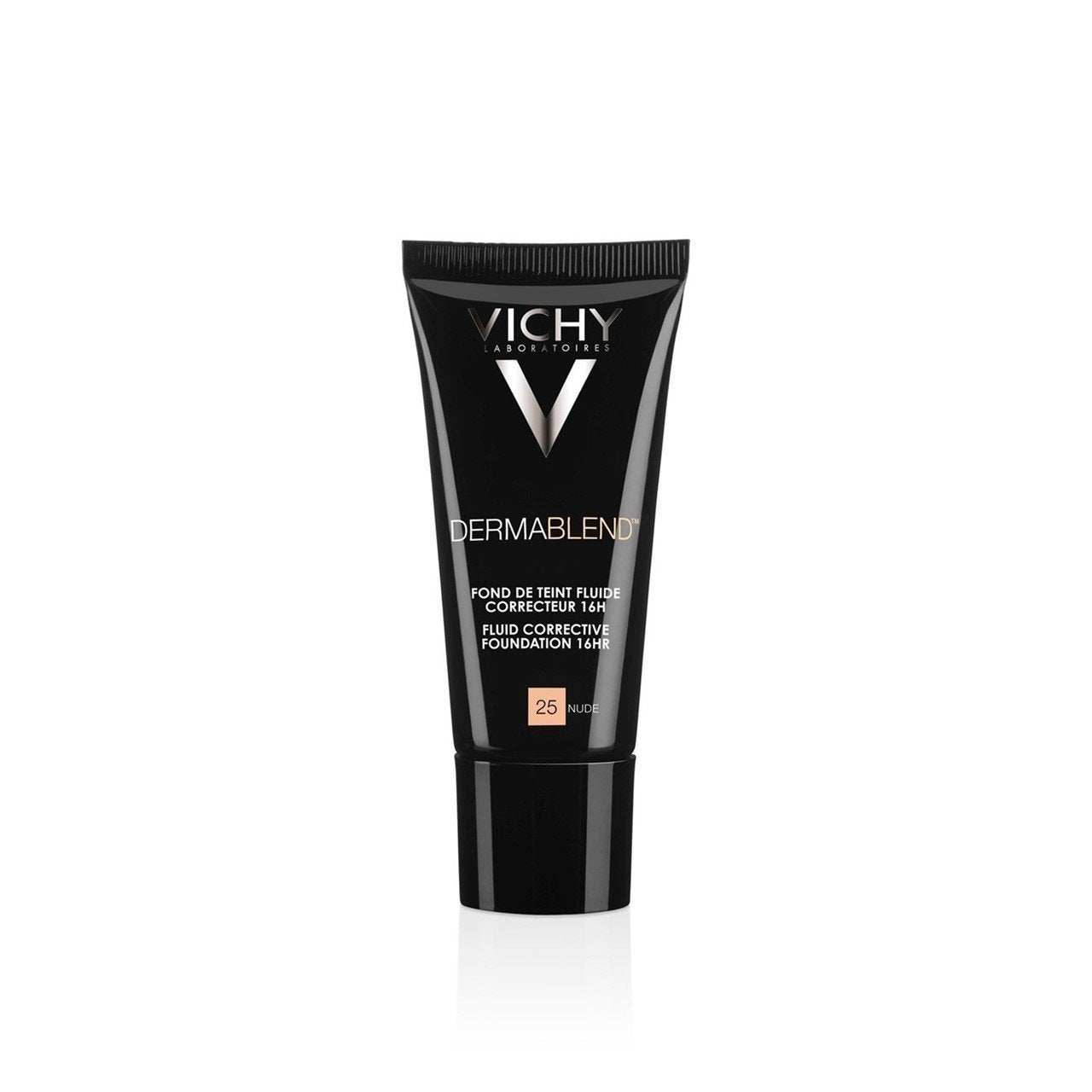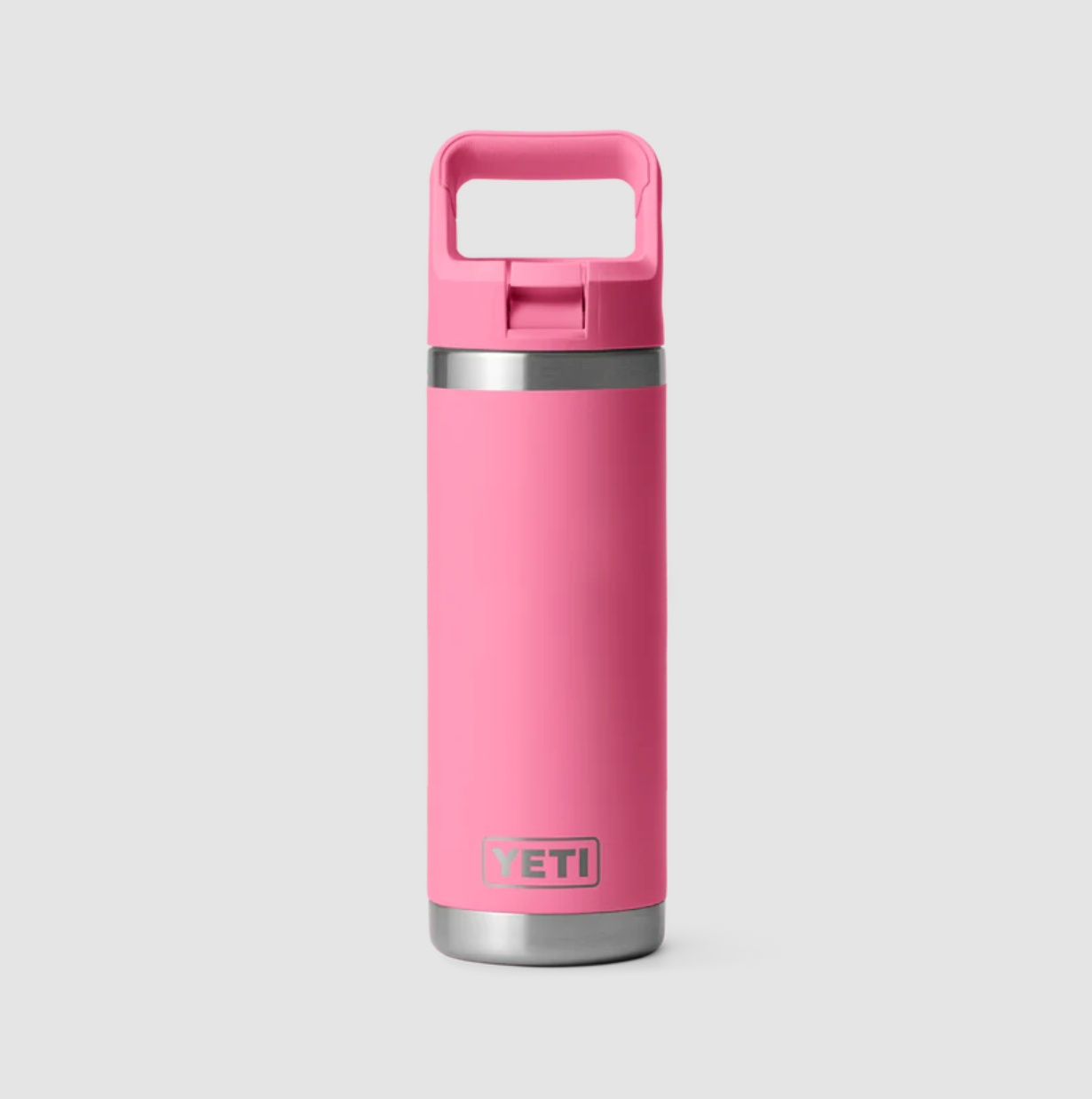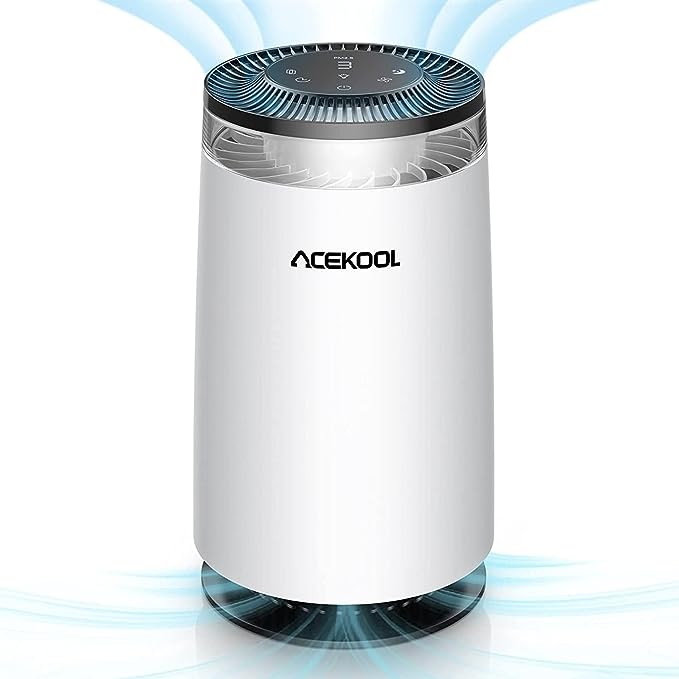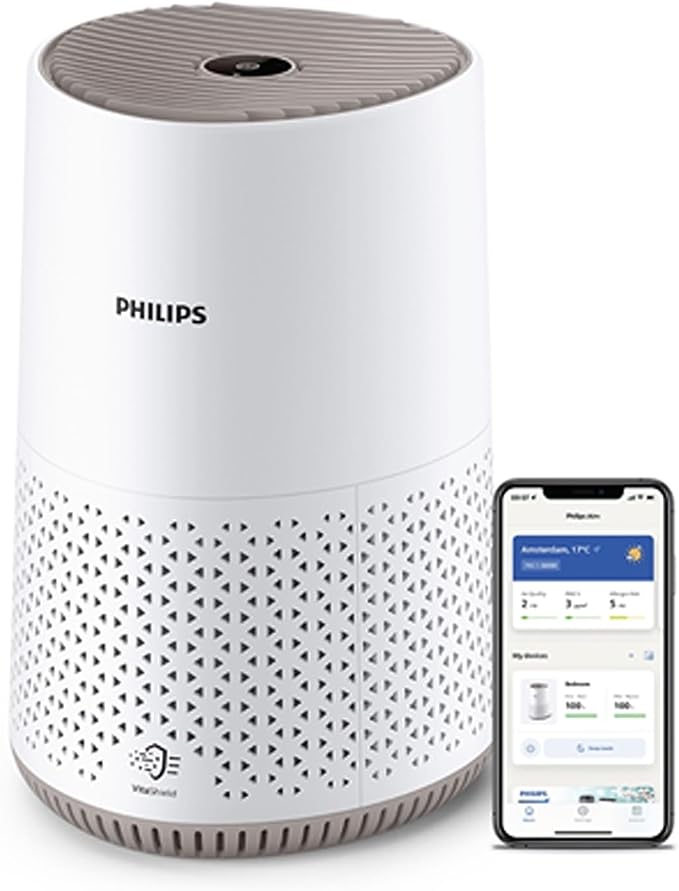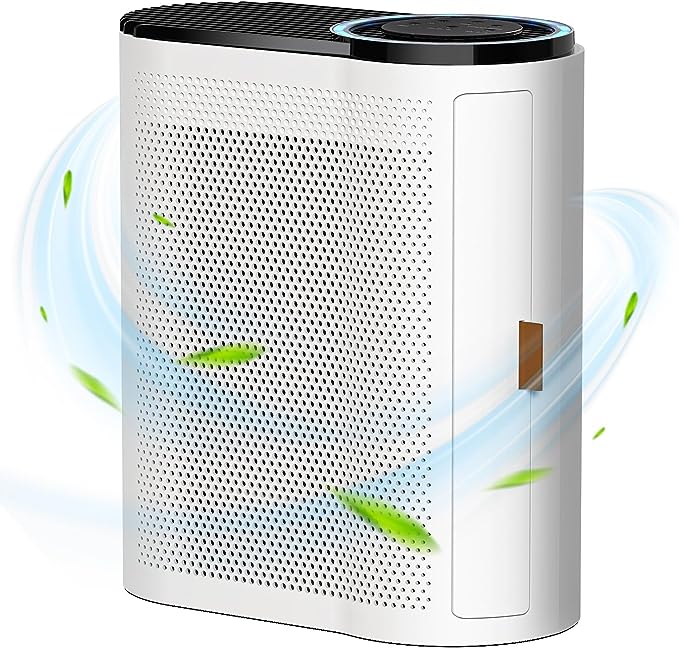These Derm-Approved Products Are Saving My Allergy-Prone Skin
As anyone who suffers from hay fever or a dust allergy knows, it takes a toll on your skin. Lots of us are prone to sensitivity and susceptible to a host of skin conditions like eczema and rosacea but when it comes to allergies, the effects can go way beyond sneezing: Eyes grow puffy and stream constantly, noses are rubbed raw from blowing too hard and redness and dryness bloom along cheeks, necks and even down chests and arms (angry rashes and swelling blisters known as hives).
Not to be dramatic but when my allergies are at their worst, it’s like a burning itchiness deep in my soul that I just can’t get out, no matter how much I cough, splutter, sneeze or blow my nose. Then there’s the tightness in your throat and the headache that accompanies all the sneezing. But of course, they’re just allergies, so we’re told to take an antihistamine and get on with it. During a flare-up, I'll often cancel plans to lie alone in a dark room, praying the Piriton will kick in soon.
AdvertisementADVERTISEMENT
This autumn though, I’ve decided to do something about it. I reached out to a range of experts for their advice on caring for hay fever and dust allergy-wrecked skin. I talked to dermatologists Dr Penelope Pratsou and Dr Vinod Vij; holistic skin scientist and founder of Dr. Jen Knows Skin, Dr Jennifer Davis Alexander; board-certified physician assistant in dermatology and founder of Element Medical Aesthetics, Merry Thornton; and immunologist Dr Jenna Macciochi. Read on for their tips, including the skincare ingredients to prioritise — and those to avoid.
How do hay fever and dust allergies affect our skin?
Both hay fever and dust allergies relate to airborne allergens, whether that's plant pollen and spores or dust mites. Because they are airborne, they can be inhaled or make contact with our skin, causing a variety of airway, nasal and skin symptoms. Hay fever tends to affect us most when outside and the causes can vary throughout the year, depending on the season (typically, tree pollen is most common from March to May, grass pollen from May to July and weed pollen from June to September). Conversely, dust allergies most often plague us inside the home. For those like me who suffer from both, there is little respite. But how do they affect our skin?
Nalan Aksahin, senior aesthetician at Rejuv Lab London, previously told R29: "As an allergy, the body's natural instinct is to fight the pollen when inhaled or if it comes in direct contact with the skin. This causes an inflammatory response on the skin that can lead to a rash, impairing the skin barrier and causing irritation and sensitivity." Dr Macciochi says that even the most minor symptoms (itchiness around your eyes, nose or throat) can provoke excessive scratching or intense nose-blowing, which further damages the skin’s protective barrier (the top part that stops moisture from escaping). The body's natural release of histamine triggers puffy and swollen eyes, which we start rubbing more, causing further harm to the sensitive eye area and potentially faster skin ageing like fine lines.
AdvertisementADVERTISEMENT
That means your already dry and flaky skin will feel even drier and flakier, and your moisturiser has to work harder to keep the skin soft and supple. "At its peak, hay fever and house mite allergies can also prompt a worsening of pre-existing skin conditions such as hives, atopic eczema, an eczematous rash and psoriasis since your immune system is compromised," adds Dr Pratsou.
What should you incorporate into your skincare routine to counter the effects of hay fever and dust allergies?
According to the experts, being hyperaware of what we’re using on our skin and how we’re applying it is key.
Simplify your skincare routine and look for products that repair your skin barrier
The first thing both Dr Pratsou and Dr Macciochi advise me to do is keep my skincare routine to a minimum, and to be careful about what I use. "Those with allergies can often have an intrinsically weaker skin barrier," says Dr Macciochi. She suggests avoiding fragrance, alcohol, harsh exfoliants, essential oils, artificial colourings and strong active ingredients like retinol as these are irritants. "Instead, look for ingredients like hyaluronic acid, ceramides and panthenol (provitamin B5)," she adds. "It’s always good to patch-test a new product before using it, too."
Dr Pratsou says cutting out the lotions and potions in favour of a gentle, unfragranced, non-foaming cleanser and moisturiser suitable for sensitive skin is your best bet when allergies are at their worst (you can gradually build back up once your skin has calmed). Those that I already love and have on regular rotation are CeraVe Hydrating Cleanser, £11.50, which is packed with barrier-building ceramides, and Cetaphil Gentle Skin Cleanser, £17.24, which is formulated with ultra-moisturising glycerin and niacinamide. La Roche-Posay Toleriane Dermo-Cleanser, £22, which is part of the first skincare range to be given the seal of approval by Allergy UK, also comes highly recommended. The experts tell me to cleanse my skin thoroughly morning and night to remove any pollen or dust particles that have built up.
AdvertisementADVERTISEMENT
After cleansing, it's important to hydrate the skin and lock in moisture. Again, ceramides are your best friend here and are integral to a healthy skin barrier. For a gentle, soothing, ceramide-packed moisturiser, try CeraVe AM Facial Moisturising Lotion SPF 30, £12.40 (it’s oil-free and non-comedogenic so great for oily and acne-prone skin), and La Roche-Posay Toleriane Double Repair Face Moisturiser, £15.20. For extra dry, sensitive skin — especially that which has been rubbed raw around the nose — I opt for Dr. Jart+ Ceramidin Cream, £38, which contains five ceramides, panthenol and glycerin to boost hydration.
Use ingredients with anti-inflammatory properties
Once your skin is soothed and more manageable, you can look to incorporate more products into your routine, namely those with ingredients that have anti-inflammatory properties. Aloe vera, green tea, chamomile and oatmeal all come with expert recommendations.
Best aloe vera skincare products for hay fever and allergies
"Aloe vera is known to reduce inflammation and provide relief from dryness and itching," explains Dr Vij. "You can either apply fresh aloe vera directly onto your skin or look for products that contain it as an ingredient." One of Thornton’s top tips is to cool aloe vera gel in the fridge before applying. For a pure dose of fair trade, organic aloe, head to The Body Shop. If you want to splurge, Dr. Barbara Sturm has combined 90% aloe leaf juice with purslane extract (aka hogweed, a powerful antioxidant containing high amounts of vitamins A, C and E) and panthenol (a humectant and an emollient, which reduces water loss and helps skin to retain moisture). The more budget-friendly Facetheory is a solid favourite at R29 headquarters and always a good shout for potent skincare concoctions. Their Supergel Oil-free Moisturiser M3, £16, combines aloe with chamomile and green tea extracts to soothe irritation further.
AdvertisementADVERTISEMENT
Best green tea skincare products for hay fever and allergies
"Green tea is rich in antioxidants that can help reduce inflammation," says Dr Vij. "It is packed with amino acids and flavonoids, which are known to aid in hydration and soothe irritated skin."
For truly angry, irritated skin, K-beauty favourite COSRX (they of the TikTok-famous snail mucin cream) has formulated an ultra-lightweight, anti-inflammatory green tea moisturiser: a hydrating, watery gel that instantly sinks into the skin (and feels amazing around a nose that has been blown too much). Another new K-beauty favourite in my arsenal is Beauty of Joseon Calming Serum, £11.86. It combines 50% green tea leaf water with 30% mugwort (a traditional ingredient in Eastern Asian medicine for treating inflammation, bacterial infection, circulatory disorders and more) and 5% panthenol.
Best chamomile skincare products for hay fever and allergies
"Chamomile's anti-inflammatory properties make it ideal for treating hay fever and allergies," says Dr Vij. "You can apply chamomile as a compress directly [with a cooled chamomile tea bag] on the skin or look for products with chamomile extract in them." While you can't beat Mario Badescu for budget-friendly spray toners, yet another K-beauty brand is top of my list. HYGGEE Relief Gel Toner, £20.10, is packed with chamomile extract, free from synthetic fragrances and artificial dyes and has been tested by the OATC Skin Clinical Trials Centre for skin irritation. There's nothing like the feeling of a cooling gel toner on hot, itchy skin.
AdvertisementADVERTISEMENT
Best oatmeal skincare products for hay fever and allergies
"Oatmeal reduces inflammation and provides relief from itching. Oats contain compounds that can help to soothe and hydrate the skin, making it a great choice for allergy relief," explains Dr Vij. My latest and greatest oat skincare find is Beauty Bay Colloidal Oatmeal + Oat Lipid Rich Moisturiser, £28.50. I've found it ultra-hydrating and cooling but lightweight enough to melt into the skin. It doesn't pile under makeup either, which is often an issue with creamy moisturisers.
Take extra care around your eyes
Thornton explains that hay fever sufferers can experience "allergic shiners" around their eyes: dark circles that develop due to the swelling and discolouration of small blood vessels. These are especially noticeable because the skin around our eyes is so thin and fragile. She recommends looking for eye creams that contain caffeine (to "constrict these blood vessels, making the area look brighter and less puffy") and niacinamide (to "soothe the skin and reduce inflammation"). Thornton suggests AVYA Eye Bright Cream, $68 (about £54). Cheaper caffeine-packed alternatives include Beauty Pie Triple Hyaluronic Acid Elastic Lifting Eye Serum, £18, and The Inkey List Caffeine Serum, £9.99.
Don’t forget SPF
Dr Vij tells me that while sunscreen won’t relieve allergy symptoms, it can prevent harmful UV rays further damaging sensitive, already aggravated skin. It’s key to look for a gentle, sensitive skin-friendly SPF, such as La Roche-Posay Anthelios Ultra-Light Mineral Sunscreen SPF 50, £15.92 (non-comedogenic, allergy-tested and fragrance-free), or EltaMD UV Clear Facial Sunscreen Broad-Spectrum SPF 46, £20.98 (specifically formulated for those prone to acne, rosacea and hyperpigmentation). Thornton also suggests looking for sunscreens that include soothing aloe, cucumber or niacinamide, like COSRX Aloe Soothing SPF50 PA+++ Sun Cream 50ml, £17.60, or COOLA Mineral Matte Cucumber SPF30, £36. "Zinc oxide, the active ingredient in many sunscreens, can be used to treat irritation as well," says Thornton.
AdvertisementADVERTISEMENT
Avoid ice rolling your skin
This is a surprising one but all the experts I talked to agree: Though it feels great, ice rolling doesn’t do you any good. "Anecdotally, ice rolling has been said to help with puffiness, lymphatic drainage and inflammation, and may bring about temporary relief, but the extreme changes in temperature can actually irritate your skin and symptoms further," says Dr Pratsou.
An alternative cooling method is using a chilled, damp cloth on your face — this is less likely to shock the skin. "Remember, when dealing with allergy-aggravated skin, being gentle is key," Dr Vij notes. Dr Alexander recommends combining chilled water with organic lavender essential oil on your cold compress. "It’s another natural ingredient that contains anti-inflammatory and antimicrobial properties to help calm and protect the skin," she explains.
There are also creams and gels designed specifically to cool and calm inflamed skin. Look for ingredients like cucumber and arnica, which are known for their cooling and soothing properties, especially in creams and masks. Clinique Redness Solutions Daily Relief Cream, £42.30, is an excellent choice. Not only does it cool down the skin but it also reduces the appearance of redness thanks to salicylic acid. (Whatever you use, store it in a cool place — not the fridge — to avoid any extreme temperature differences.) "Avoid massaging the skin though as it can cause further skin irritation," says Dr Alexander.
Vaseline is your new best friend
Alleviating symptoms can be tricky once they’ve started wreaking havoc. Your best bet is to take precautions to stop them occurring in the first place. "Vaseline around the nose can work well as a barrier cream to trap pollen and dust mites," says Dr Pratsou. If you're not a fan of Vaseline, barrier balms from brands like HayMax and Balmonds are handbag essentials.
AdvertisementADVERTISEMENT
Don’t forget to look after the skin on your scalp, too
"There is no clear clinical data to suggest dandruff gets worse when hay fever worsens," says Dr Pratsou, "but a byproduct of histamine release into the skin due to activated hay fever or due to airborne pollens landing on the scalp can result in more scalp irritation or allergy." Just like the skin on your face, try using allergy-friendly, fragrance-free hair care products like Green People Scent-Free Shampoo, £16, and Conditioner, £16, or Briogeo Be Gentle, Be Kind Aloe + Oat Milk Shampoo, £24, and Conditioner, £24.
Is it okay to wear makeup when my skin is inflamed from hay fever or dust allergies?
It’s unanimous: You can still wear makeup if your skin is inflamed from your allergies. A massive relief, I’m sure, for all of us battling red, puffy faces. It's best to use hypoallergenic, fragrance-free makeup products specifically designed for sensitive skin that won’t exacerbate your symptoms. Consider mineral-based products, too, as these are least likely to cause additional irritation. For those wanting lighter coverage, try bareMinerals Complexion Rescue Tinted Moisturiser SPF30, £29.25; to really cover up your redness, my go-to is Vichy Dermablend Fluid Corrective Foundation 16HR, £21.11. Both are hypoallergenic and free from parabens (bareMinerals is also free from silicone and fragrance). Mascara wearers will be glad to know that sensitive skin champion La Roche-Posay has once again come to the rescue. Their Toleriane Volume Mascara, £19, is formulated for those with sensitive eyes (and great for contact lens wearers, FYI).
AdvertisementADVERTISEMENT
What lifestyle changes can I incorporate to counteract my hay fever or dust allergy?
It’s not just about what we put on our skin to alleviate allergy symptoms; it’s also what we put in our bodies. "Firstly it is important to get control of your symptoms. This involves a combination of both allergen avoidance and calming the immune response," explains Dr Macciochi. "It is important to keep a note of your triggers, avoid them where possible and talk to your doctor about allergy testing to identify your specific triggers." This is most easily done by monitoring pollen counts or the last time you dusted your home. According to Dr Macciochi, allergies are often a sign of immune imbalance, which can be regulated by regular exercise, managing stress and good quality sleep.
Keep hydrated
Yet another reason to drink more water! "Don’t forget to stay hydrated by drinking plenty of water to keep optimal mucus consistency to protect the mucus barriers," says Dr Macciochi. "Naturally, all the sneezing and coughing dehydrates you." I've found that investing in a good-quality, stainless steel water bottle with an attached straw, like the Yeti Rambler, £30, has really helped up my water intake.
Invest in a good-quality air purifier
The quickest and easiest way to counteract hay fever and dust allergies is to invest in a good-quality air purifier. As specified by all the experts, your choice should have a HEPA (high-efficiency particulate air) filter and be designed to remove various airborne particles, including allergens, pollutants and irritants, from the indoor air. There's no need to spend too much money. Acekool's mini purifier is a budget-friendly, small-home pick for under £30 (our choice if you live in a flatshare); for larger spaces, we would opt for Philips' powerful and quiet 600 Series, £99.99, which covers just over 44 square metres.
At Refinery29, we’re here to help you navigate this overwhelming world of stuff. All of our market picks are independently selected and curated by us. All product details reflect the price and availability at the time of publication. If you buy or click on something we link to on our site, we may earn a commission.
AdvertisementADVERTISEMENT







